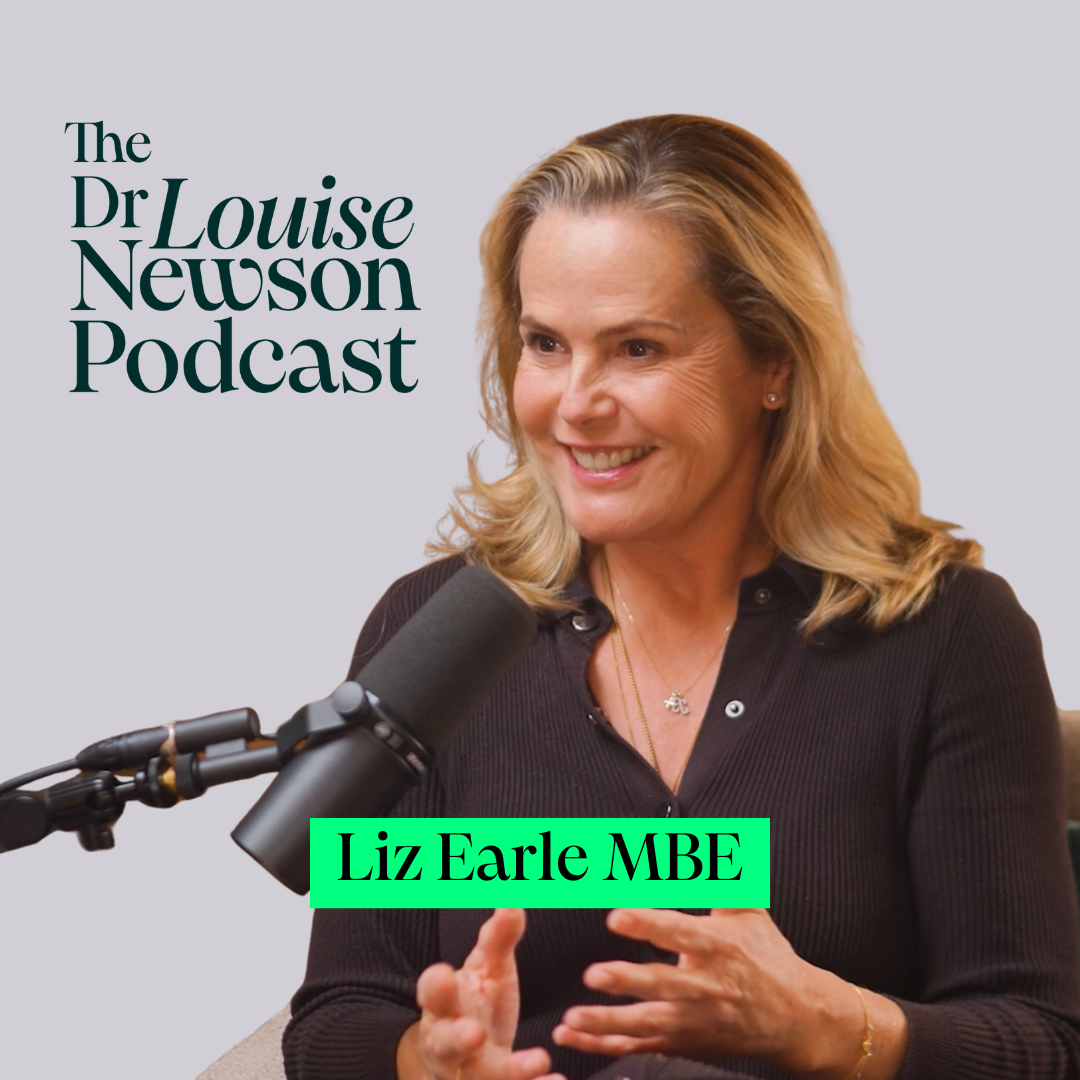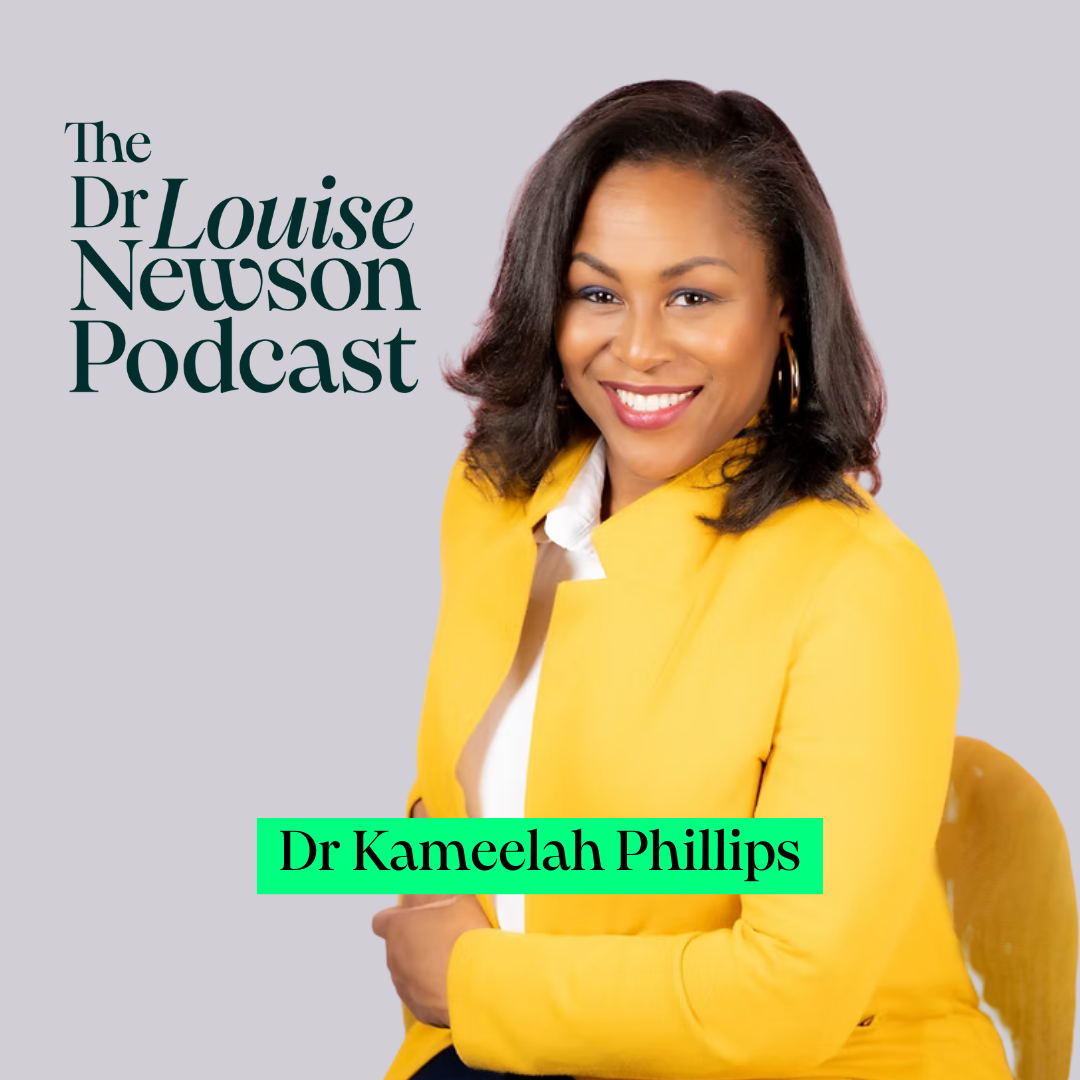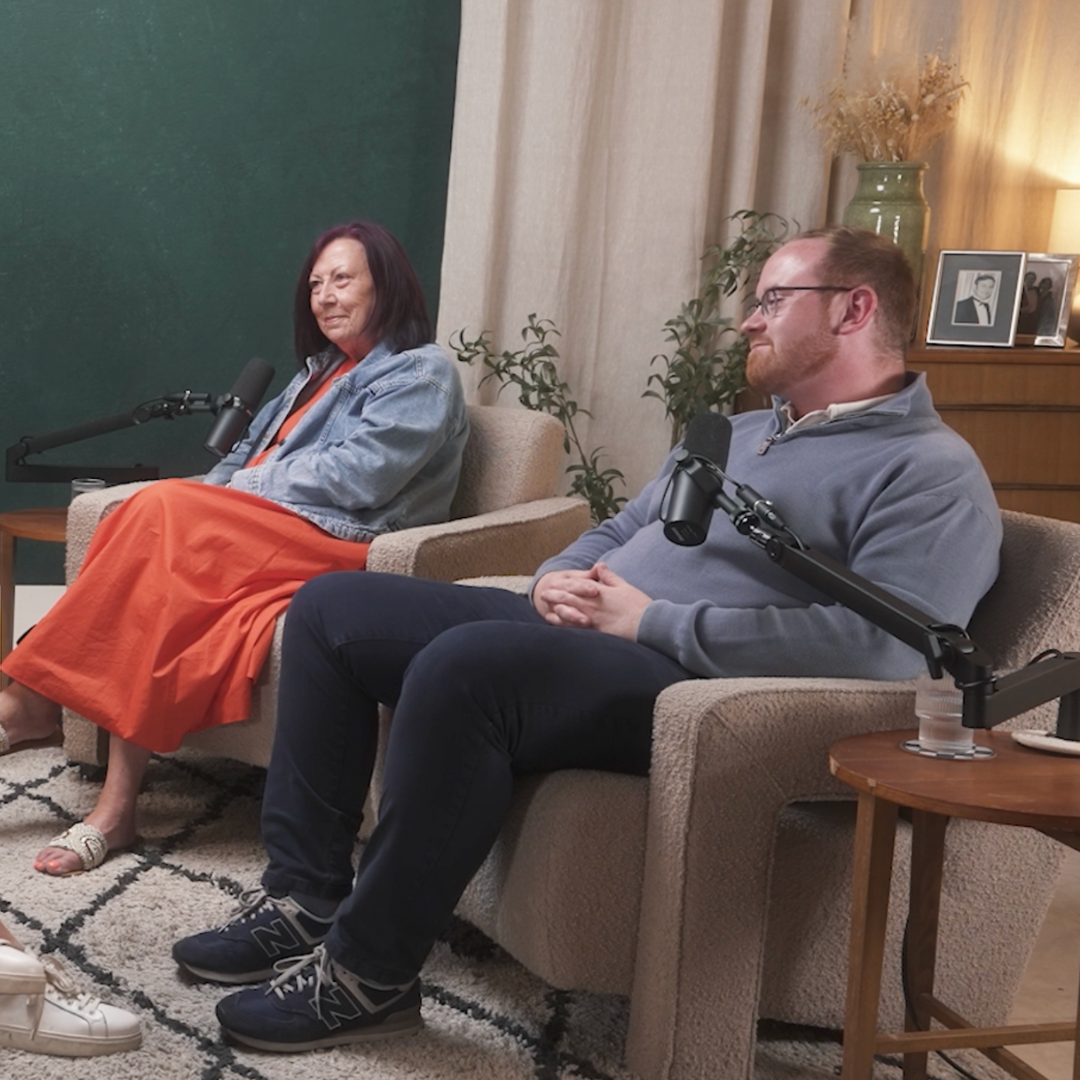Menu

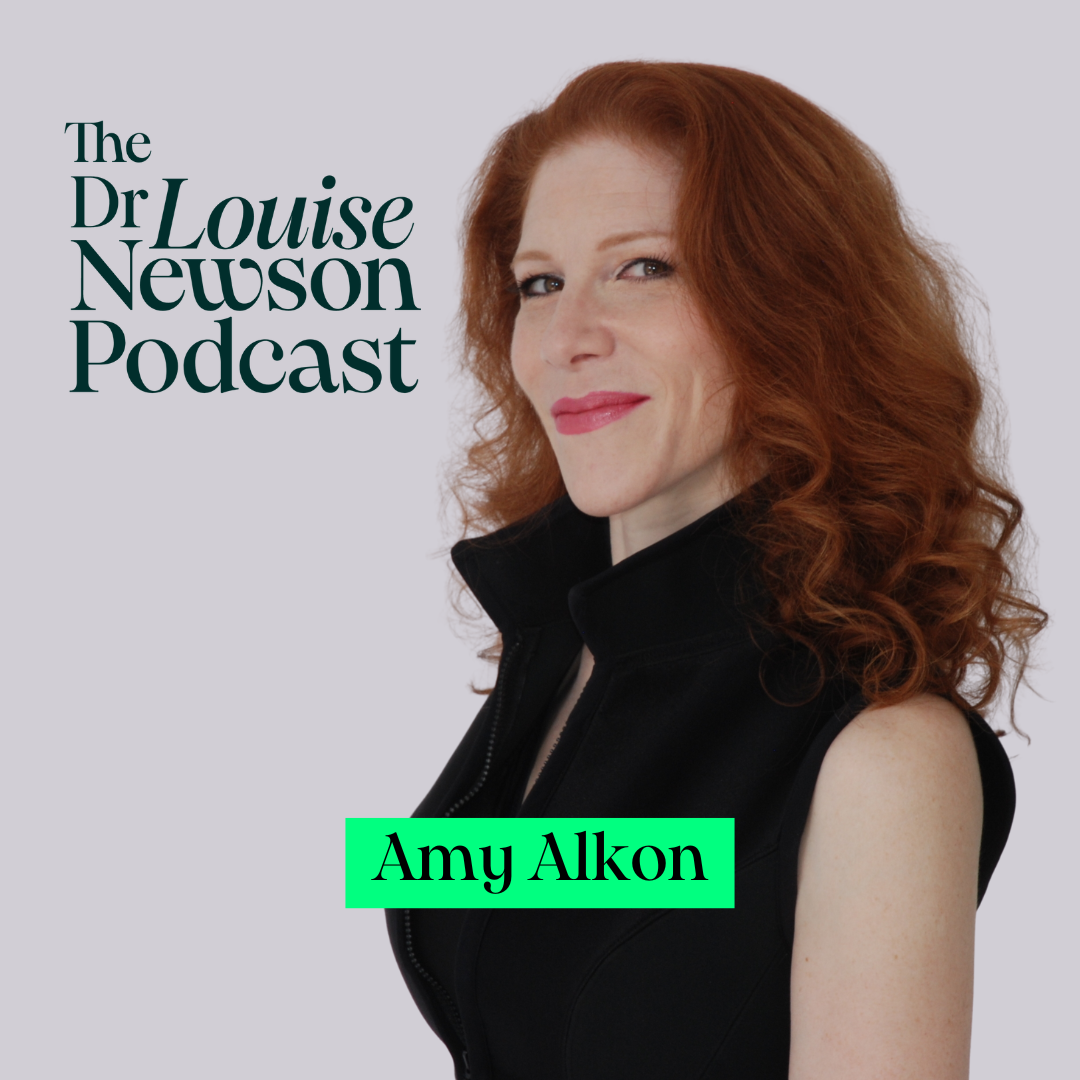
Despite increased awareness, misinformation around menopause is still everywhere with outdated fears about hormone therapy, confusion over types of hormones and mixed messages about risks leaving many women unsure where to turn.
In this episode, Dr Louise Newson sits down with Amy Alkon, an American author and science writer, for a clear-eyed look at what the evidence really shows. Amy’s book, Going Menopostal, unpacks the research behind menopause and exposes how gaps in medical education still affect women’s care.
Their conversation covers the differences between hormone types, the importance of scientific literacy in medicine and the value of personalised, evidence-based treatment. It’s an honest, informative discussion that helps separate fact from assumption in menopause care.
LET'S CONNECT
Subscribe here 👉 https://www.youtube.com/@menopause_doctor
Website 👉 https://www.drlouisenewson.co.uk/
Instagram 👉 / @drlouisenewsonpodcast
Download balance app 👉 / https://www.balance-menopause.com/balance-app/
LinkedIn 👉 / https://www.linkedin.com/in/drlouisenewson/
TikTok 👉 / https://www.tiktok.com/@drlouisenewson
Spotify 👉 https://open.spotify.com/show/7dCctfyI9bODGDaFnjfKhg
LEARN MORE
Buy Amy’s book, Going Menopostal 👉
https://www.amazon.co.uk/Going-Menopostal-Science-Menopause-Perimenopause/dp/1637742452
Take my online education course, Hormones Unlocked 👉 https://www.learningwithexperts.com/products/hormones-unlocked-dr-louise-newson
Sign up for my Confidence in Menopause Course 👉 https://www.drlouisenewson.co.uk/education---confidence-in-menopause

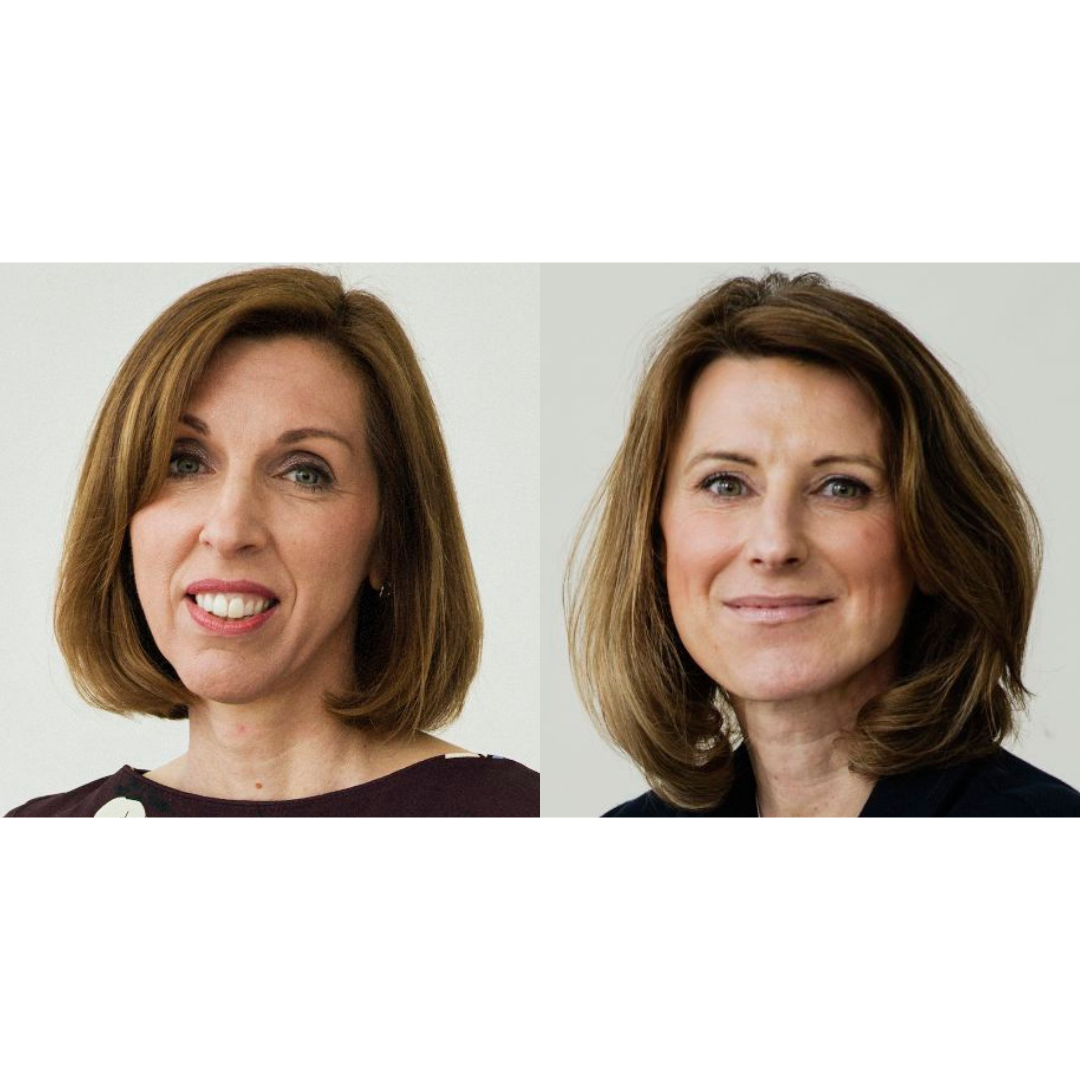
Dr Rebecca Lewis, Clinical Director at Newson Health, returns to the podcast for the first episode of 2022 to discuss the perimenopause with Dr Louise Newson. The experts explain what the term means, what’s happening to your hormones during this phase, and how it can be diagnosed. Dr Rebecca Lewis offers practical advice on how to speak to your healthcare professional to convey the range of related perimenopausal symptoms and raise the issue of hormones.
Find out what your increased health risks are when your hormones change and what you can do to mitigate these risks. The perimenopause is discussed as an opportunity to take stock and consider introducing some small changes to your lifestyle that will improve both your physical and mental health.
Rebecca’s three top tips if you think you might be perimenopausal:


Pharmacist, Jonathan Underhill is a consultant clinical advisor for the Medicines Optimisations team at the National Institute for Health and Care Excellence (NICE). His work is focused on evidence-based medicine but, as he explains, this is more than simply telling people what to do. One of the particular focuses of Jonathan’s work is the process known as ‘shared decision making’ between the clinician and the patient and he’s interested in how you involve a person in choices and decisions about their own healthcare.
Jonathan outlines some of the reasons NICE was originally set up – to reduce uncertainty and variation in prescribing – and with Louise, he evaluates whether this has been the outcome 6 years down the line, after the release of the NICE guidelines on menopause diagnosis and management.
Jonathan’s tips for shared decision making as a patient:
And for healthcare professionals:
The NICE guidelines on menopause can be read in full here and more about shared decision making can be found here.
If you are a healthcare professional, you can find four hours of free online learning in shared decision making from NICE and Keele University here.


In this episode, Dr Louise Newson is joined by Lucy Chatwin, who is responsible for the not-for-profit organisation, Newson Health Research and Education. Lucy has had a portfolio career that has taken her through environmental science and operations, through human resources and management into health, in particular service improvement and transformation roles in the NHS. Her last role in the West Midlands Academic Health Science Network focused on supporting the adoption of innovation into health services to improve health outcomes for people. Lucy is perfectly placed to bring together the often diverse worlds of industry, academia, and clinical organisations to drive improvements that will make a real difference to the lives of people in the perimenopause and menopause and those around them.
Lucy discusses the range of opportunities for innovation in menopause research, education and management and encourages those working in health and academia to ‘think hormones’ as an integral part of their practice.
Lucy’s tip for women is make time for yourself to unpick what is going on if you think you may be perimenopausal, don’t just assume it’s down to other things. Download the balance app at www.balance-menopause.com to help understand your hormones, the impact they’re having on you and how to get help for your symptoms.
Lucy’s tips for healthcare professionals:

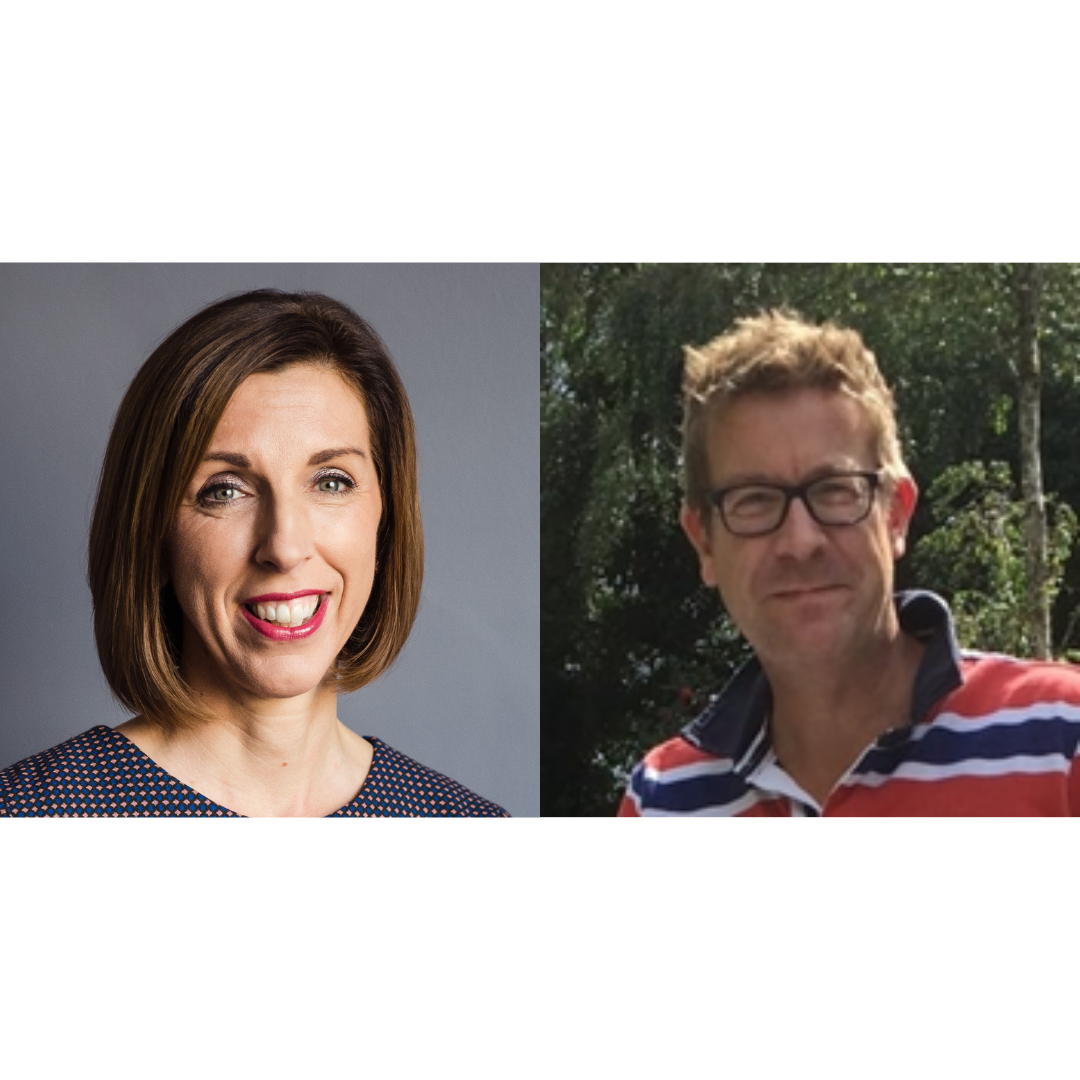
Dr Richard Hull teaches philosophy at the National University of Ireland, Galway. Due to a coming together of work life and home life in lockdown and his wife’s experience, Richard began thinking and writing about the menopause from an ethical and philosophical perspective. As an issue under our noses all the time, he was astounded that more isn’t written about it, and he queries the lack of ethical concern for women regarding this time of life and the impact on those around them.
Richard discusses with Dr Louise Newson the importance of raising awareness of perimenopause and menopause, sharing accurate information, training healthcare professionals and empowering women with the right knowledge to recognise what is happening to them and to get the help they need through treatment.
Richard’s three hopes for change:

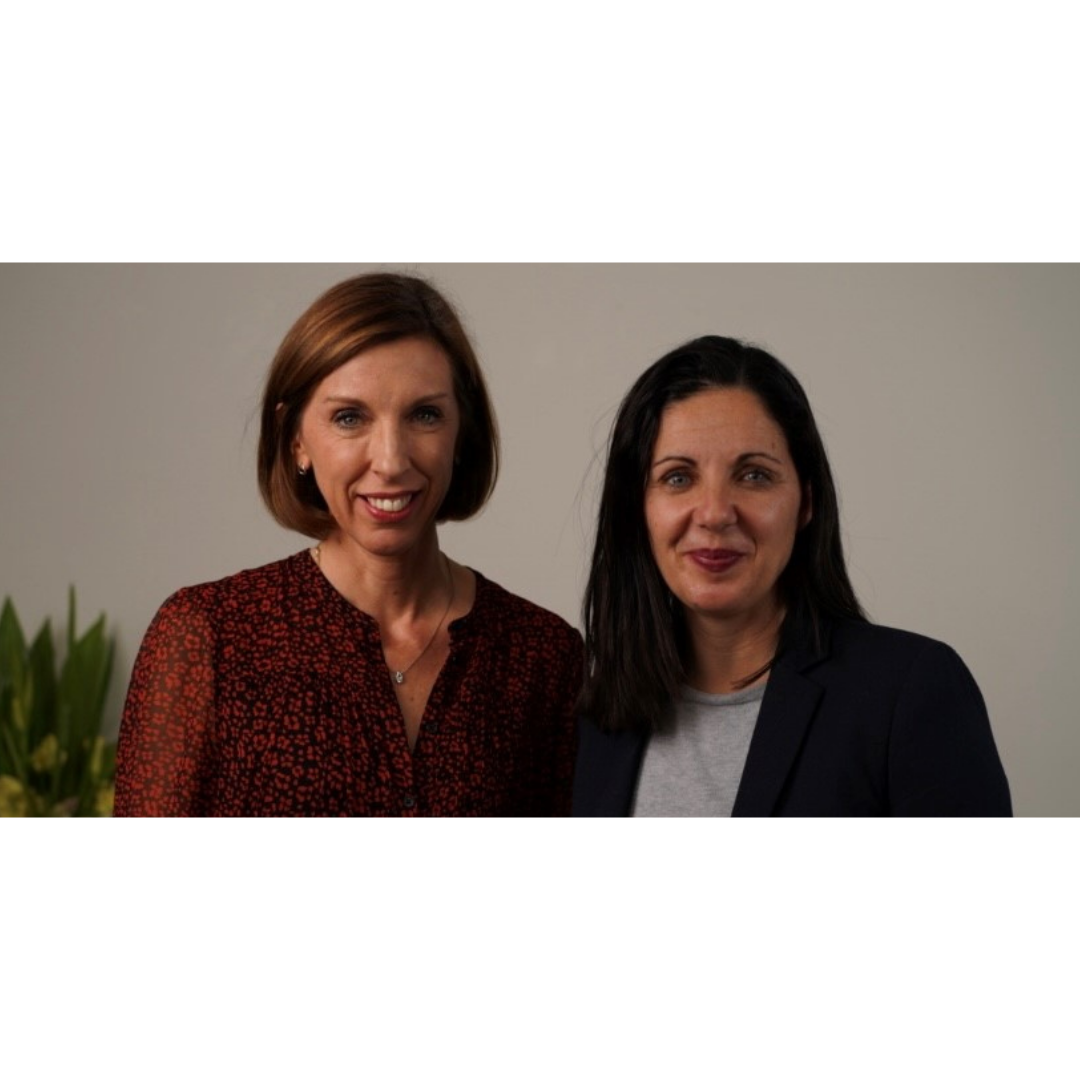
Gaele Lalahy had a successful career in consumer electronics as Board Member and Head of Brand Communications & Olympic marketing at Panasonic. Having been with the same company for two decades, Gaele became fearful of not having tried a different career, so she decided to take the leap and leave her job without a plan in place. When the opportunity came up to run Dr Louise Newson’s Balance menopause support app, it didn’t immediately grab Gaele’s interest because, as she admits, she knew nothing about the menopause or the scale of the problem facing women.
After doing her own research and realising hundreds of thousands of women were suffering and struggling to get treatment, Gaele came on board as the Chief Operating Officer for Balance at the start of 2021. Since then, the app has grown ten-fold and is really helping to change the narrative around perimenopause and menopause and empower women with the information they need to get help from their local GP practices. Gaele shares some of the remarkable statistics that show how the app helps women get a diagnosis and treatment more efficiently, and she discusses plans for the app’s future that will make even more of a difference to people’s lives.
Gaele’s 3 reasons to use the Balance app:
Find out more information about the Balance app on the balance-menopause.com website here.
You can follow the Balance app on their social platforms at:
Facebook @balanceMenopause
Instagram @balancemenopause
Twitter @balanceMeno
LinkedIn @balance-app

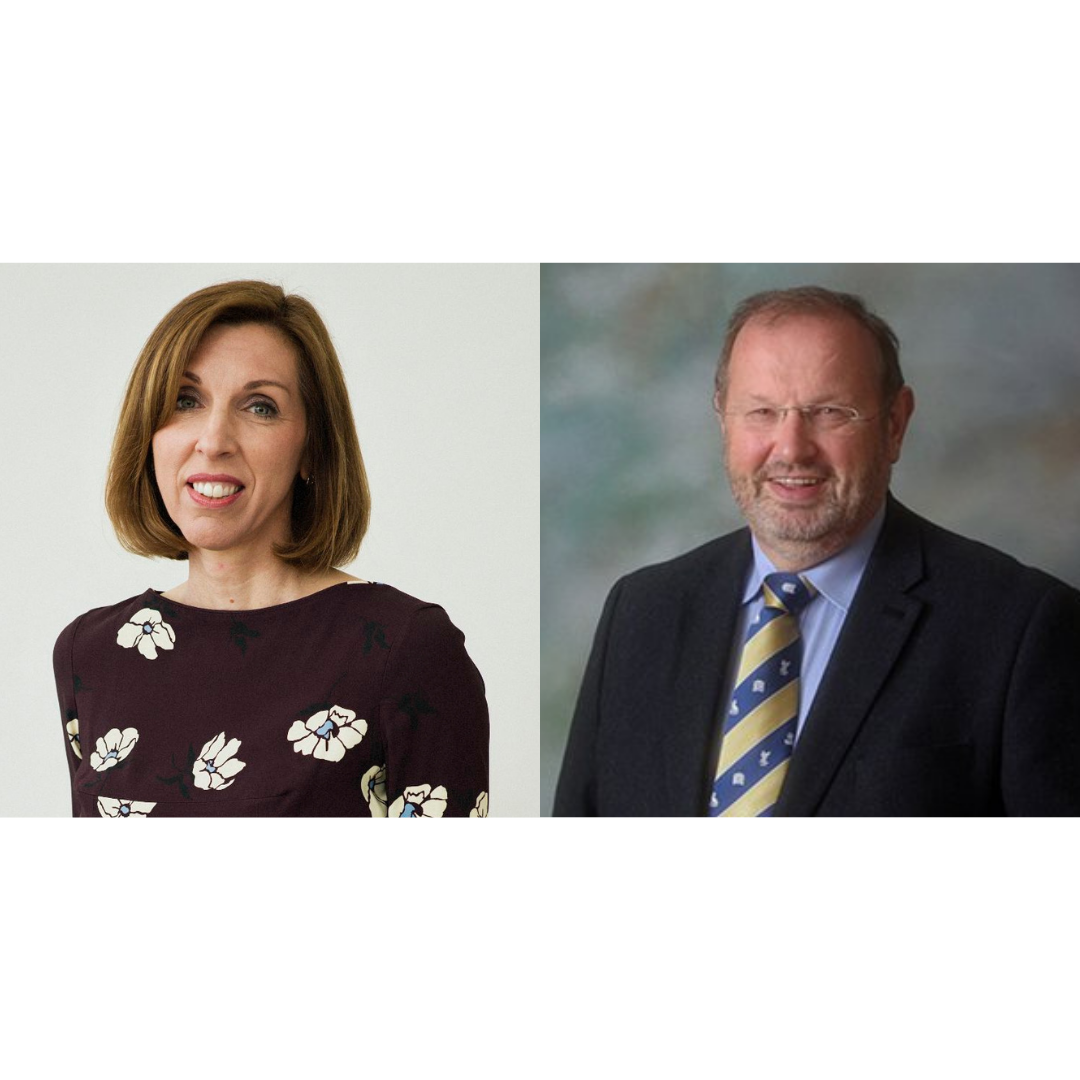
In this episode, Dr Louise Newson is joined by a long-time friend, retired consultant urologist, Steve Payne. Together they discuss Steve and his wife Jan’s experience of her breast cancer and subsequent treatment that led to oestrogen depletion. Steve describes the decision-making process they went through as a couple when Jan’s quality of life deteriorated due to severe urine and kidney infections, as well as other symptoms relating to a lack of oestrogen.
The experts talk about how some people’s experience in cancer care clinics can fall short of patients and their partners being given full and balanced information into how cancer treatments will affect your hormones and what this potentially means for your quality of life. Steve shares his honest reflections and insights about cancer care clinics and offers invaluable advice for those navigating these complex and confusing decisions at such a difficult time.
Steve’s advice for making decisions about cancer treatments:

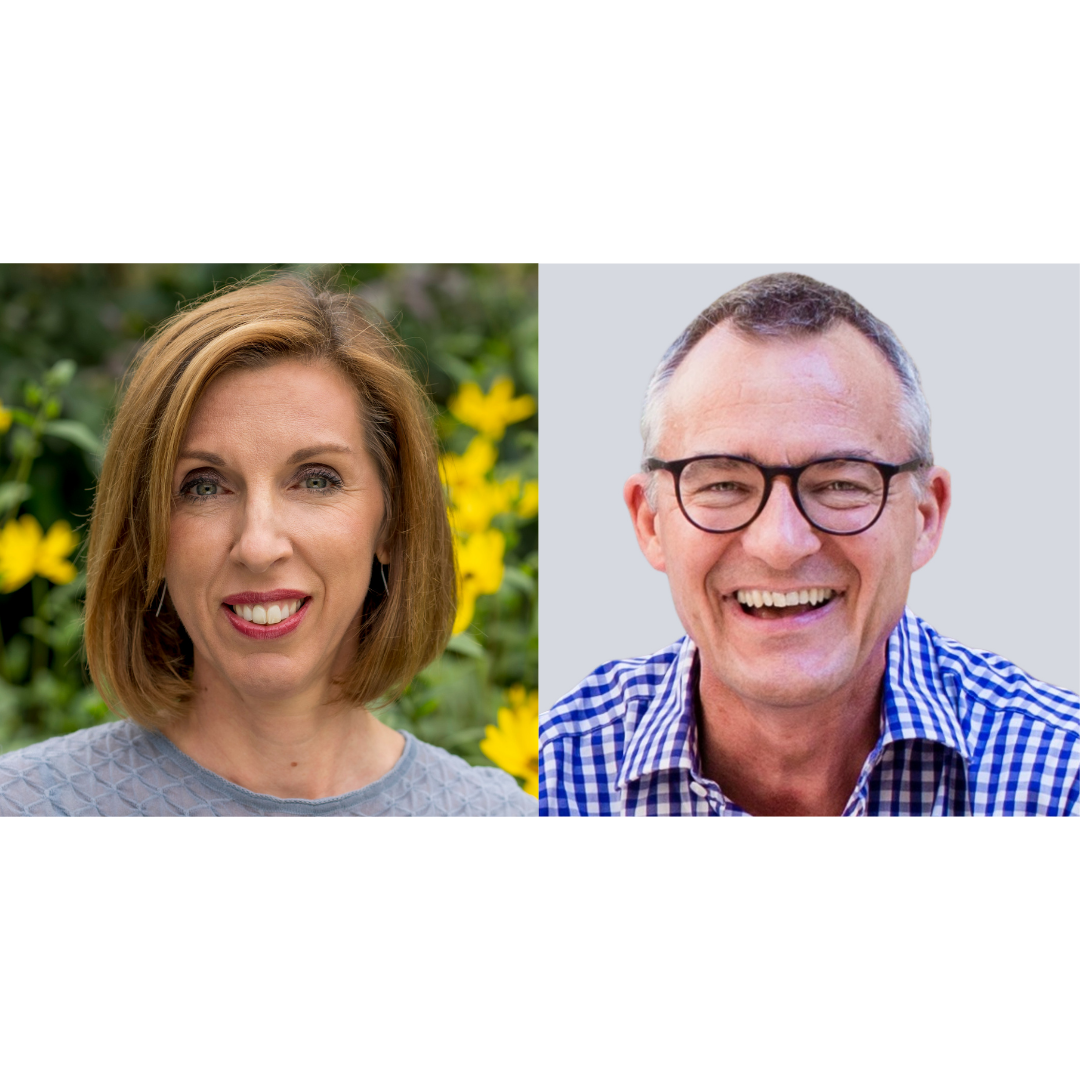
In this episode, Dr Louise Newson explains about an exciting new appointment for Newson Health and introduces Alistair Darby as the new CEO. Coming from a hospitality background, Alistair Darby explains what led him to apply for the role of CEO of a menopause healthcare company, and he shares how his awareness of menopause increased after he witnessed the devastating impact on his wife 5 years ago.
Alistair and Louise discuss the problem of the menopause in the workplace and the resulting gap of female talent at the top. They talk through their joint mission to normalise getting treatment for the perimenopause and menopause and speculate on what a difference this would make to relationships, the workplace, healthcare and society.
Through his role, Alistair hopes to:

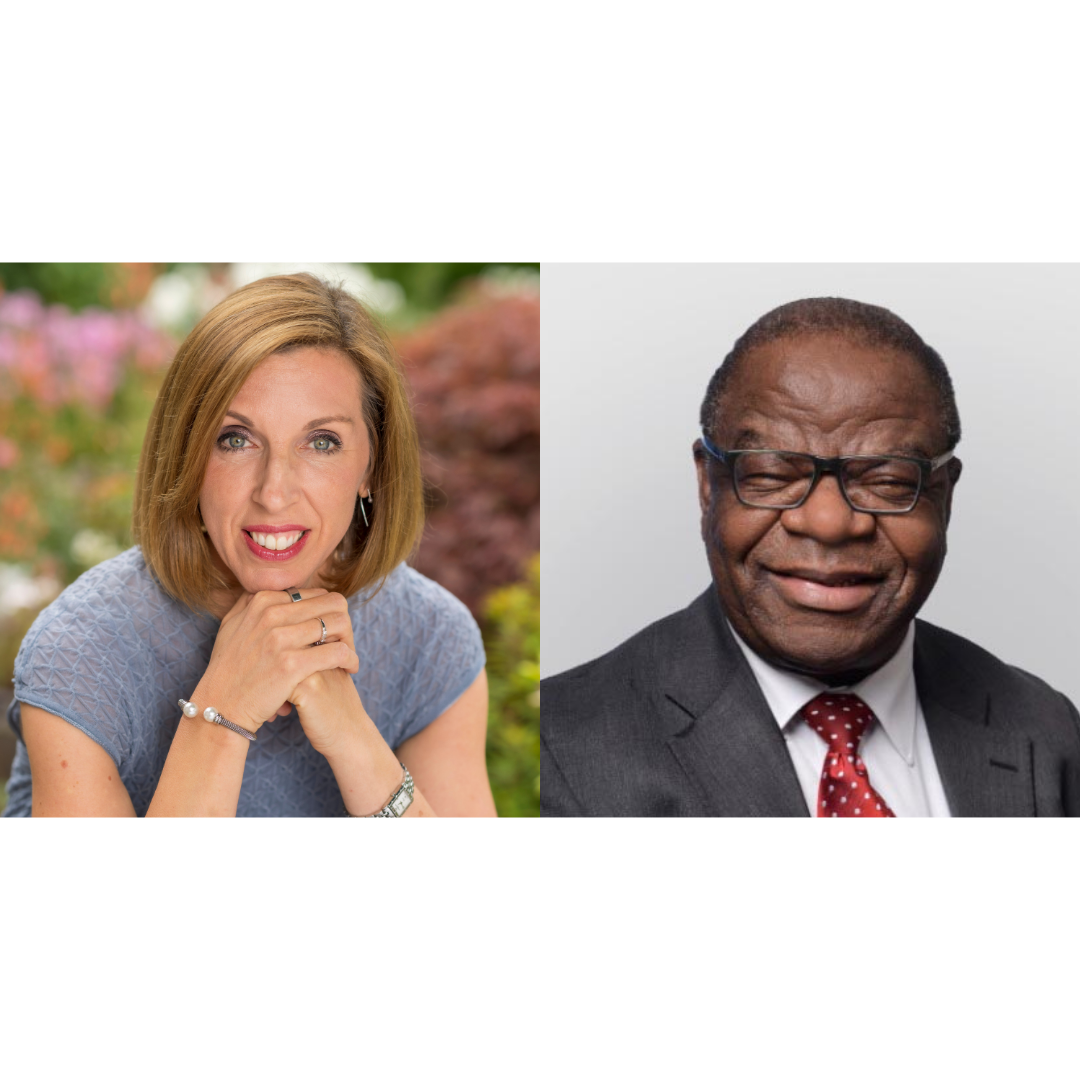
Professor Isaac Manyonda is back by popular demand to discuss perhaps the most important issue for women considering and taking HRT: what is the risk of breast cancer if I take HRT? Professor Isaac Manyonda expertly takes the listeners through the different issues, one by one, including comparing the level of risks of breast cancer from HRT with lifestyle factors such as weight and alcohol intake. He outlines the risks according to different types of oestrogen and progesterone, and explains the difference between oestrogen receptor positive and negative breast cancers.
Prof Manyonda’s three take-home messages:

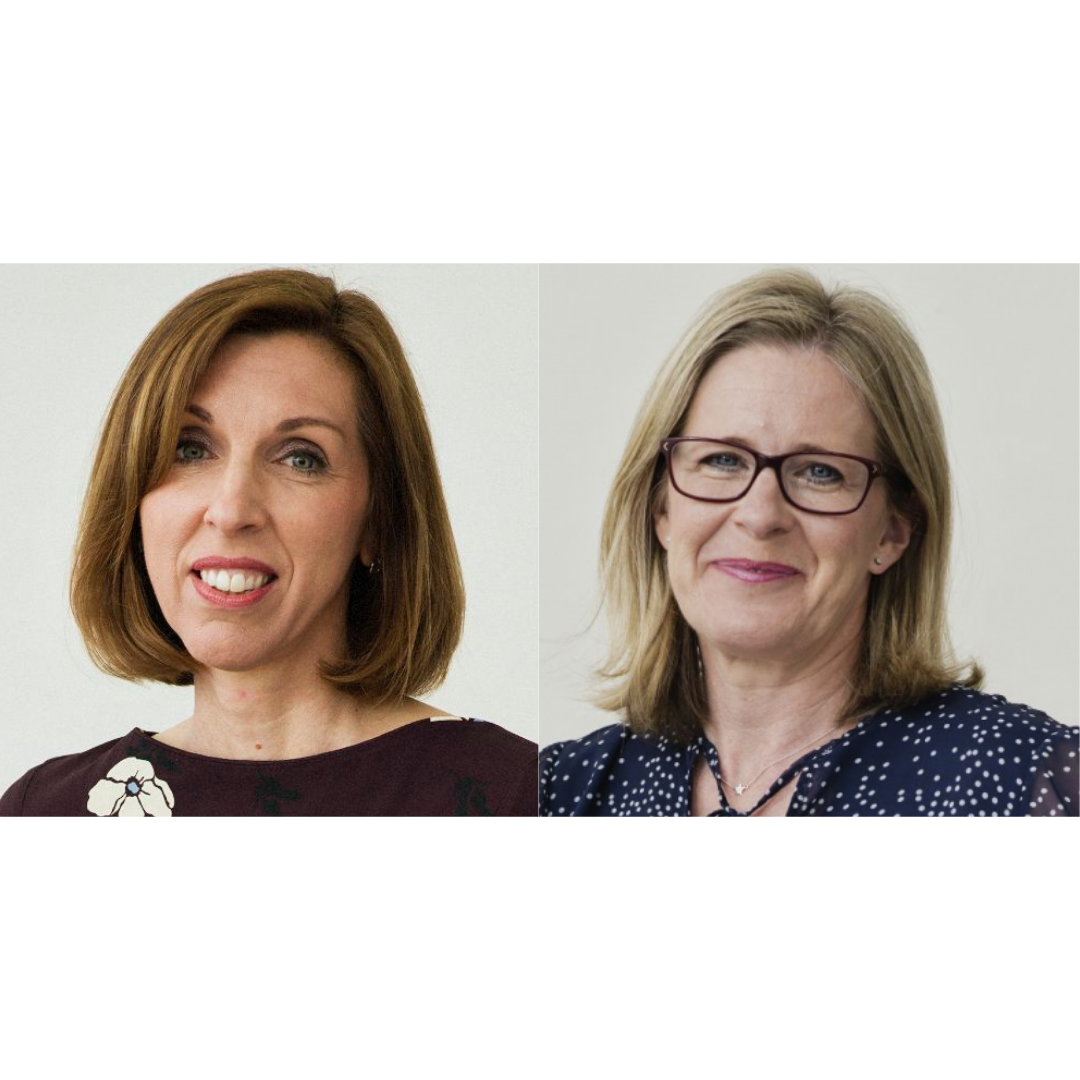
Menopause specialist, Dr Sarah Ball, makes a record fourth appearance on the Dr Louise Newson podcast this week, to talk about an important group of women that often feel marginalised when it comes to menopause care and treatment. One in seven women will experience breast cancer, and many more of us have a close relative who has had breast cancer. Thankfully, thousands more women are living longer after breast cancer, but this often means living with the menopause and symptoms of a lack of hormones.
The experts discuss the risk factors of developing breast cancer and the complexities of the association between hormones and breast cancer. Dr Sarah Ball has researched the experiences of menopausal women having breast cancer treatment and her findings reveal women are having to endure menopausal symptoms for an average of seven years before seeking, or being given, help and treatment, and sadly, only 10% of the women surveyed felt they were involved in decisions about their care.
Dr Ball and Dr Newson are both passionate about helping women after breast cancer and believe it is essential that these women are listened to, that healthcare professionals discuss in full the treatment options for their menopausal symptoms, and that women feel empowered to make a decision that’s right for them, at that time, being aware of all the relevant information.
Sarah’s 3 tips for women after breast cancer:
Follow Dr Sarah Ball on Instagram @drsarahmollyball and Twitter @sarahball14

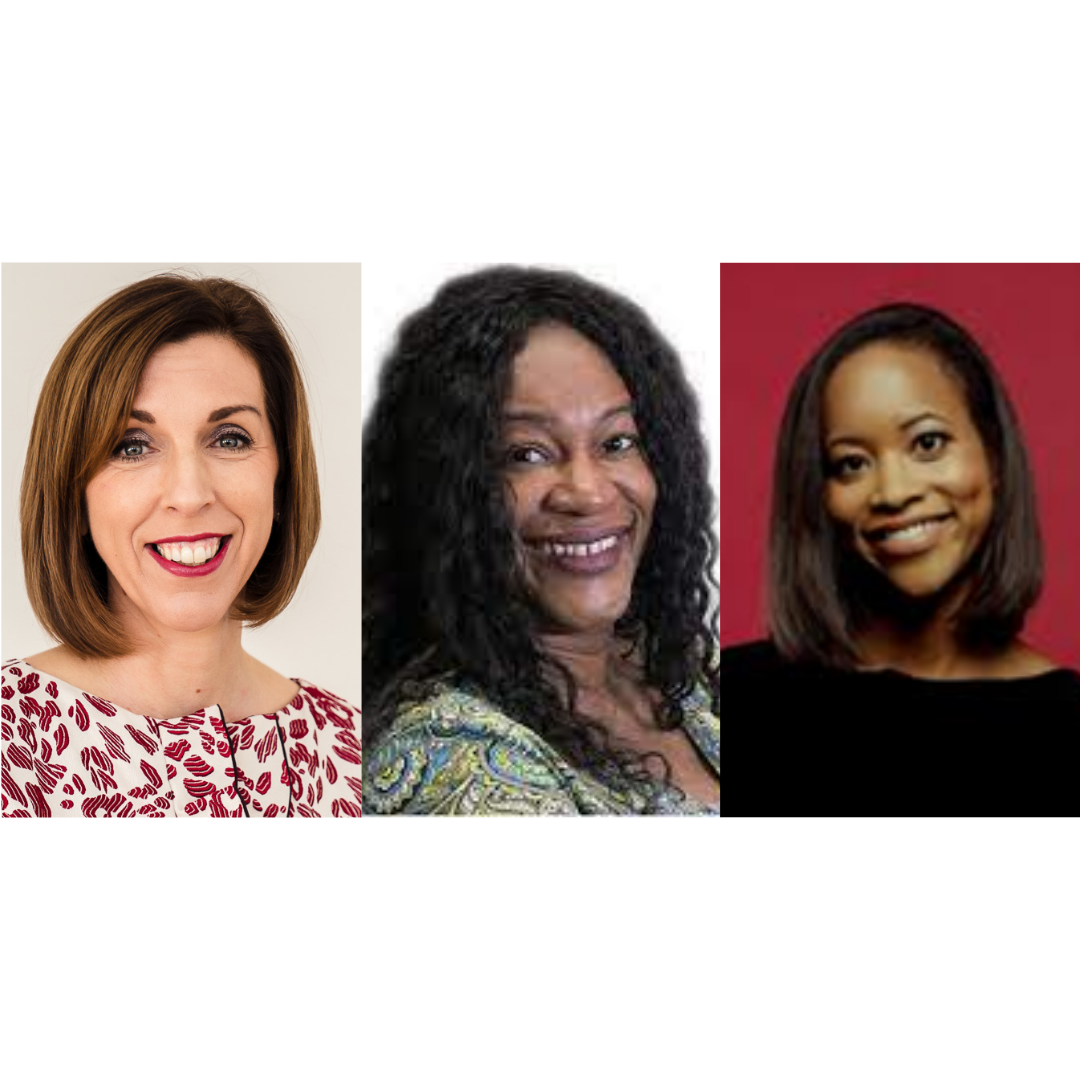
Dr Nneka Nwokolo and Dr Martina Toby are both consultant physicians in sexual health and HIV medicine, and together they have joined forces to help educate and advocate for women of colour experiencing perimenopause and menopause.
In this episode, the experts share what prompted them to set up the ‘Shades of Menopause’ Instagram group and the benefits of using social media to support women of colour. Together with Dr Louise Newson, they discuss some of the socioeconomic and cultural factors, as well as gender inequalities that affect a woman’s experience of healthcare, and the unfortunate lack of research around use of HRT in women of colour.
Nneka and Martina’s three tips to women of colour:
Follow the podcast guests on Instagram: Shades of Menopause.

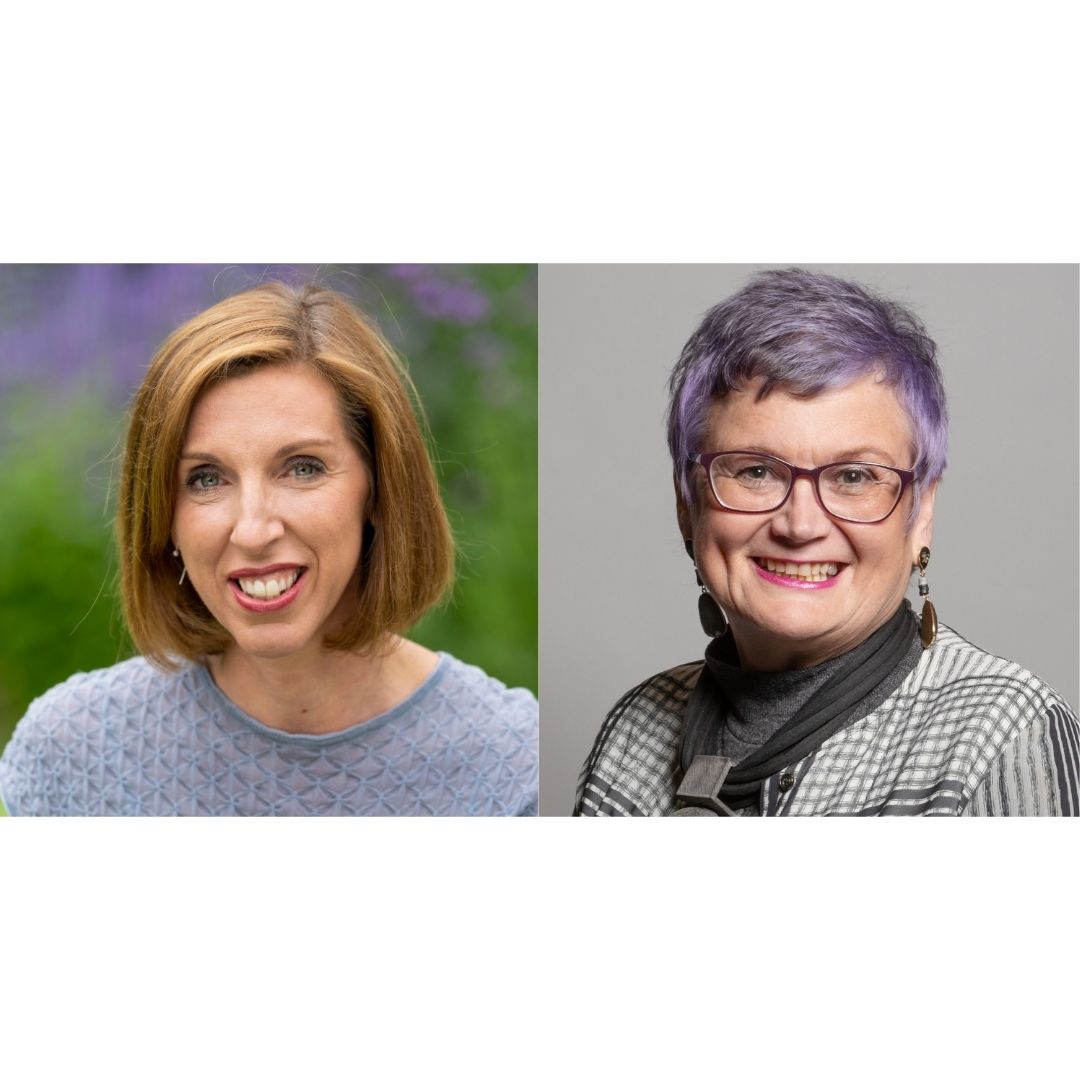
Carolyn Harris MP left school at 16, had two children at a young age and worked as a barmaid. Her young son, Martin, was tragically killed in a road accident in 1989 and this changed her life forever. She sank into a black hole for the next few years but turned things around when at 34 she became the first person in her family to go to university. Carolyn never dreamt that 20 years later she would be the MP for her community, Swansea East, and although she continues to experience imposter syndrome regularly, once she has decided to fight for change, she does not give up.
Carolyn has campaigned on topics such as child funerals and gambling. She did not realise her collection of health problems were related to the menopause at first, but when she joined the dots and learnt more about the effects of the menopause, especially in the workplace, she set up an All Party Parliamentary Group on menopause and was successful in changing the law in Wales in removing the prescription fee for HRT.
Carolyn’s advice to women:
Carolyn Harris MP details:
Website: www.carolynharris.org.uk
Twitter @carolynharris24 and @AppgMenopause
Email: carolyn.harris.mp@parliament.uk

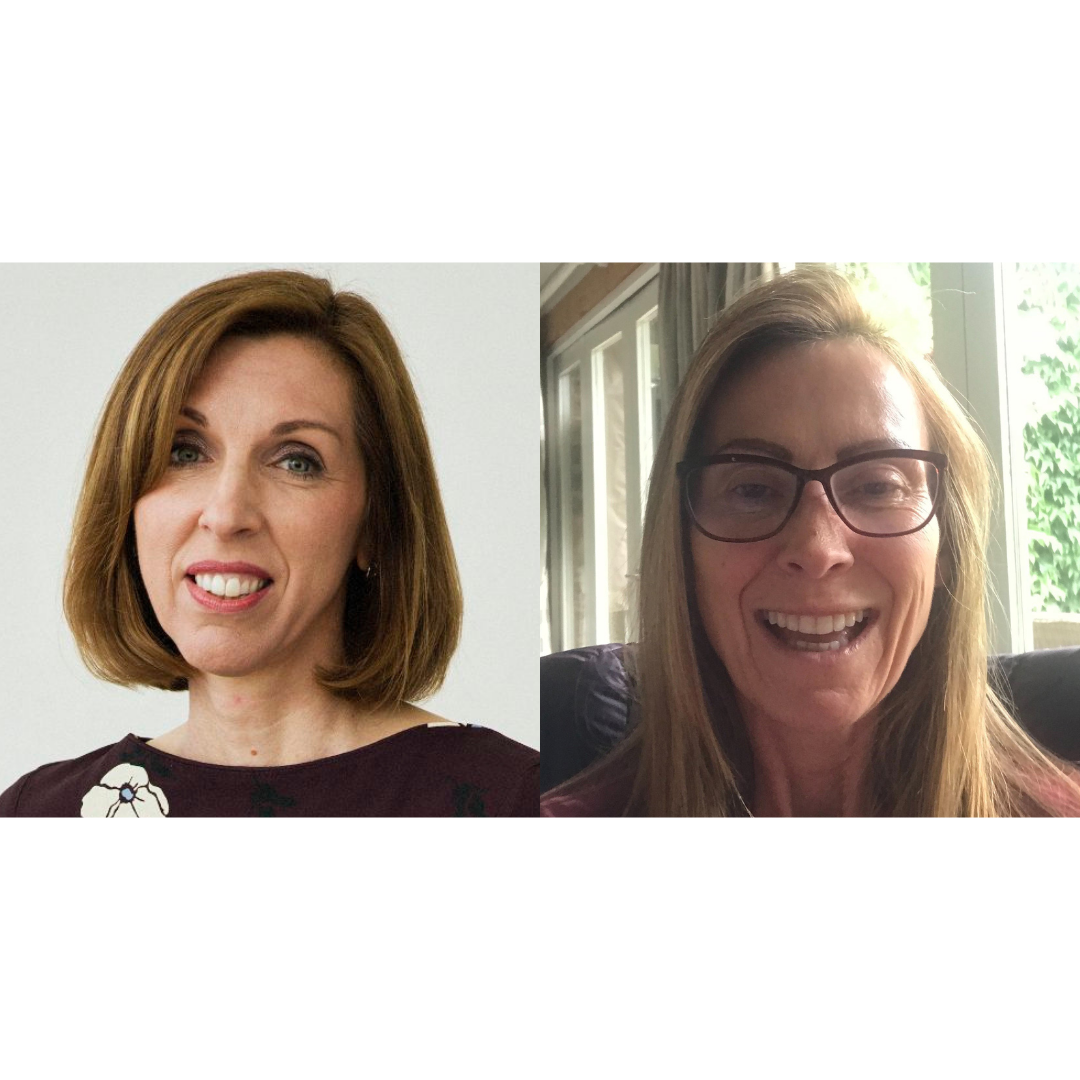
Maggie Honey was diagnosed with antiphospholipid syndrome, which can be described as having ‘sticky’ blood that is prone to clotting. When she was 46 and a busy mum of triplets, Maggie began having insomnia, recurrent UTIs and dry eyes, skin and mouth. It wasn’t until her periods had stopped for a year and she felt dreadful all the time that she realised many of her symptoms might be related to menopause. When she sought help, she was given more diagnoses related to her blood condition but no help for her symptoms. Her blood disorder consultant at the time told her, ‘whatever you do, don’t go on HRT’. This was due to the inaccurate belief that all HRT holds a risk of clot.
In this episode, Dr Louise Newson talks through all the issues that Maggie’s story illustrates, including explaining why HRT is usually safe for people at risk of clot, when oestrogen is given through the skin via a patch, gel or spray. They discuss how beneficial HRT can be for your quality of life, and what lifestyle factors do actually raise your risk of getting a clot.
Maggie’s three menopause tips for people at risk of clot:
Thrombosis UK is the charity mentioned in this episode for people at risk of, or living with, thrombosis (clots) and the website is www.thrombosisuk.org

.jpg)
In this special episode, released on World Menopause Day 2021, Dr Louise Newson talks to two women about their own experiences of menopause. Melanie is a midwife from Birmingham who talks about her ongoing challenges of coping with menopausal symptoms, getting the right support at work, and finding a treatment that works for her. Grace is in her 50s and went through an early menopause in her late 30s. She struggled over the years to be listened to by healthcare professionals and have her needs understood as a gay woman. After watching the documentary with Davina McCall, Grace felt empowered to push for the help she knew she needed.
Melanie and Grace’s conversation with Louise aptly illustrates what World Menopause Day is all about – raising awareness about the effects of menopause on women’s health and wellbeing globally, and elevating voices of those going through the menopause from all cultural backgrounds and sexual orientation. As Louise says, we cannot fully celebrate World Menopause Day until all women, all over the world are able to get the help and support they need.
Grace and Melanie’s top reasons for speaking out for WMD:

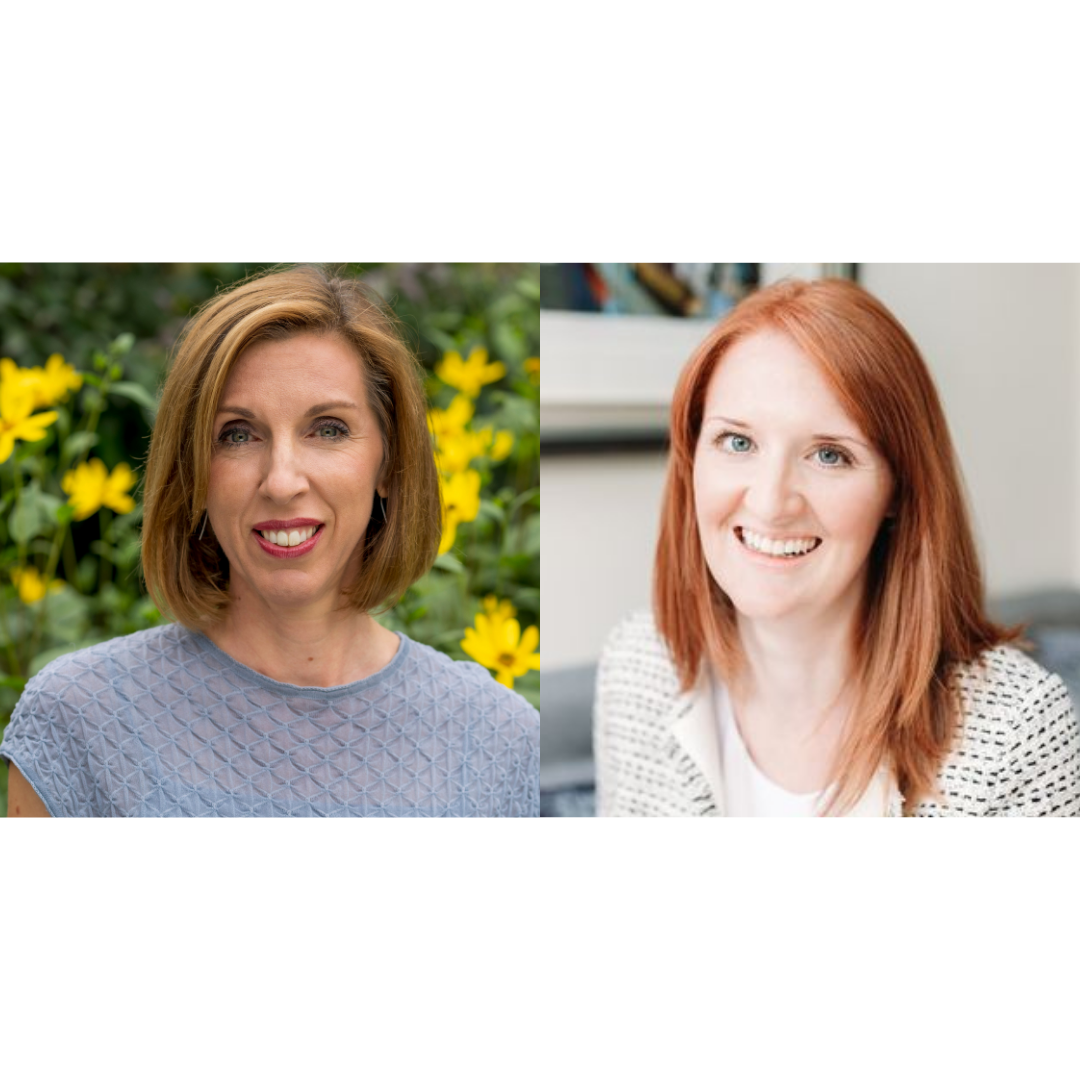
Healthy Eating Doctor, Dr Harriet Holme, joins Dr Louise Newson on the podcast couch this week to discuss the importance of nutrition for reducing long term risk of disease and improving your future health.
Before becoming a registered nutritionist, Harriet worked for ten years as a doctor before her interest grew in the link between what we eat and our health. She is passionate about sharing evidence-based knowledge to help people understand more about their own diets and health, and offers nutritional consultancy as well as lecturing on culinary science and nutrition.
Harriet’s four key ingredients for eating in the peri/menopause:
Listen to Harriet on her own podcast, Eating for Health or visit her website: healthyeatingdr.com
Find Harriet on social media at:
Facebook @healthyeatingdrcom
Twitter @healthyeatingdr
Instagram @healtheatingdr

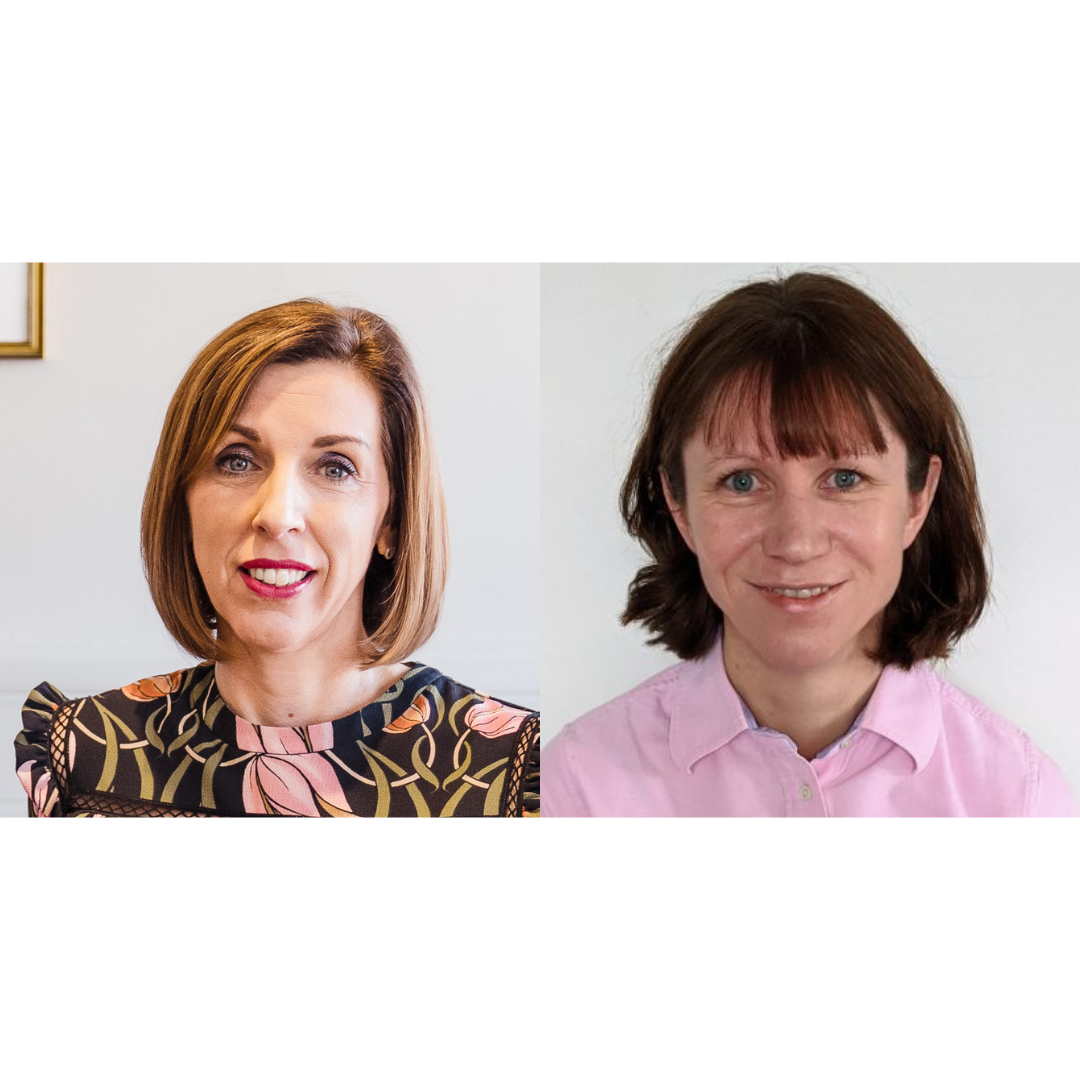
Dr Zoe Hodson returns to the podcast this week to talk to Dr Louise Newson about the hormone testosterone. Zoe is a GP and senior doctor at Newson Health, and together they discuss the impact of low testosterone on your daily life, why it can be difficult to get hold of, and gender inequalities in healthcare provision when it comes to this particular hormone.
Zoe is on a personal mission to ask every local health commissioning group if their clinicians can prescribe testosterone and, if not, why not? Change is happening slowly within primary care and Zoe and Louise are committed to continue to push for testosterone to be regarded as an integral part of menopause care at a free, local level for all.
Zoe’s three asks for change:
Zoe would like to thank all her followers on social media for their wonderful support and encouragement to keep speaking up for women and trying to bring about change for good. You can follow Zoe on Instagram @manchestermenopausehive

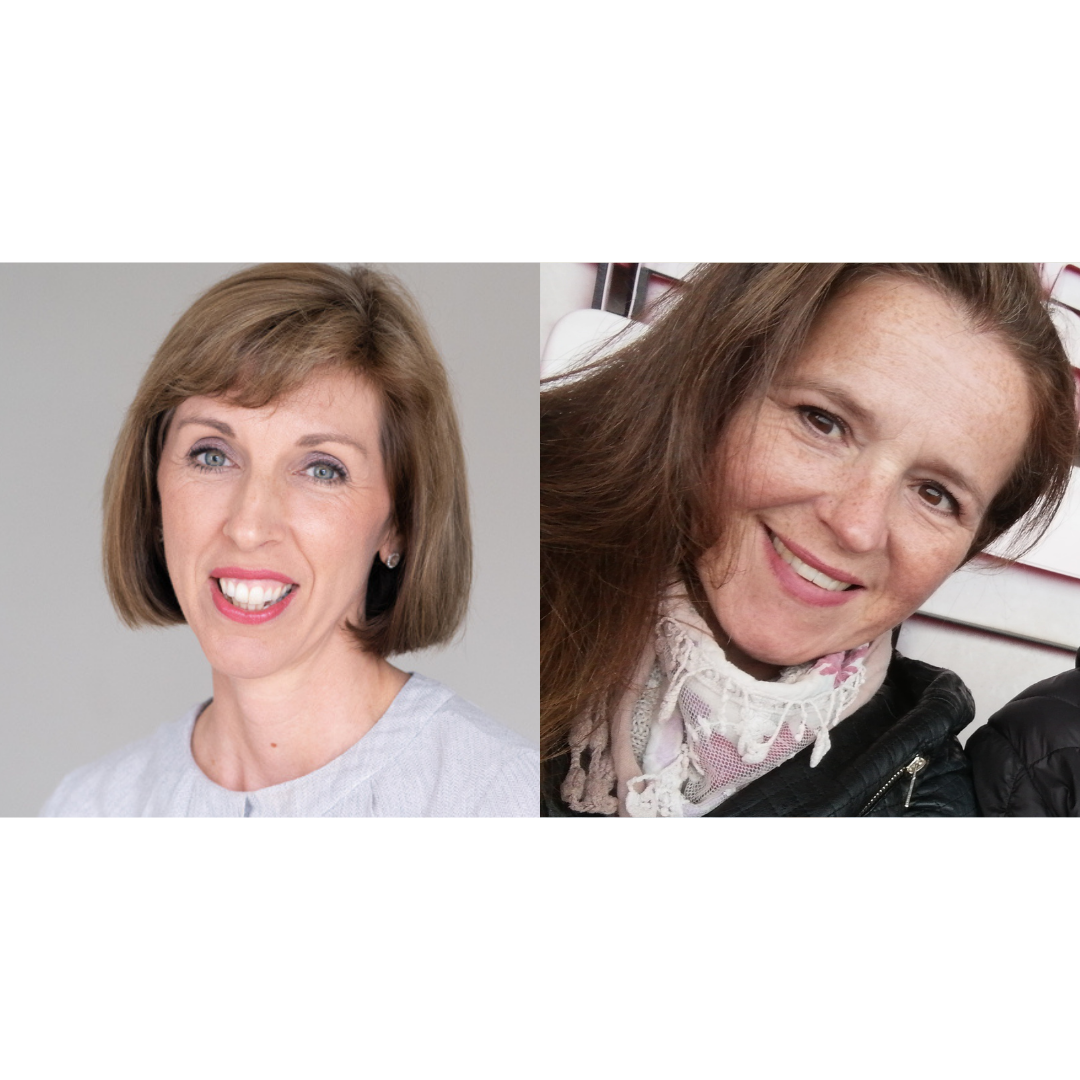
Rachel was a very active 45-year-old, who loved the outdoors and her job as a specialist teacher when her fit and healthy body began suffering with one problem after another. Joint problems and crushing fatigue curtailed her hobbies of hiking, climbing and cycling. The following months saw her list of unexplained symptoms grow and grow from being in constant pain, migraines, and gum problems, to palpitations, dry mouth and eyes, anxiety and electric shock sensations. Within two years, she describes herself as ‘just a shell who couldn’t leave the house’, she had given up her job, and living with this version of Rachel had a huge impact on her husband and son. After multiple trips to the GP and blood tests, she was given a diagnosis of chronic fatigue syndrome.
In this episode, Rachel tells her story to Dr Louise Newson and takes listeners through her journey, including self-diagnosis and battles to get the help she knew she needed. After beginning on oestrogen replacement and seeing some mild improvements but still experiencing severe fatigue, she learnt about testosterone and its importance for energy and stamina. Now, six months after starting on testosterone, Rachel describes the improvement as ‘life-changing’. She feels a fully functioning human again, is able to work part time, and even manage a five-mile walk.
Dr Newson explains what testosterone does, why we need it, and why it can be so hard to get hold of the hormone at your local GP practice. Louise reassures listeners that she is working hard with NHS England on this very matter and is hopeful that change will come.
Both Louise and Rachel agree that testosterone should not be described as the ‘icing’ on the HRT cake but a crucial ingredient of the cake itself.
Rachel’s top three tips:
Note: Rachel had to see a menopause specialist to get her initial prescriptions for testosterone. After lots of persevering on her part, it has now been agreed to be prescribed via her usual NHS GP.

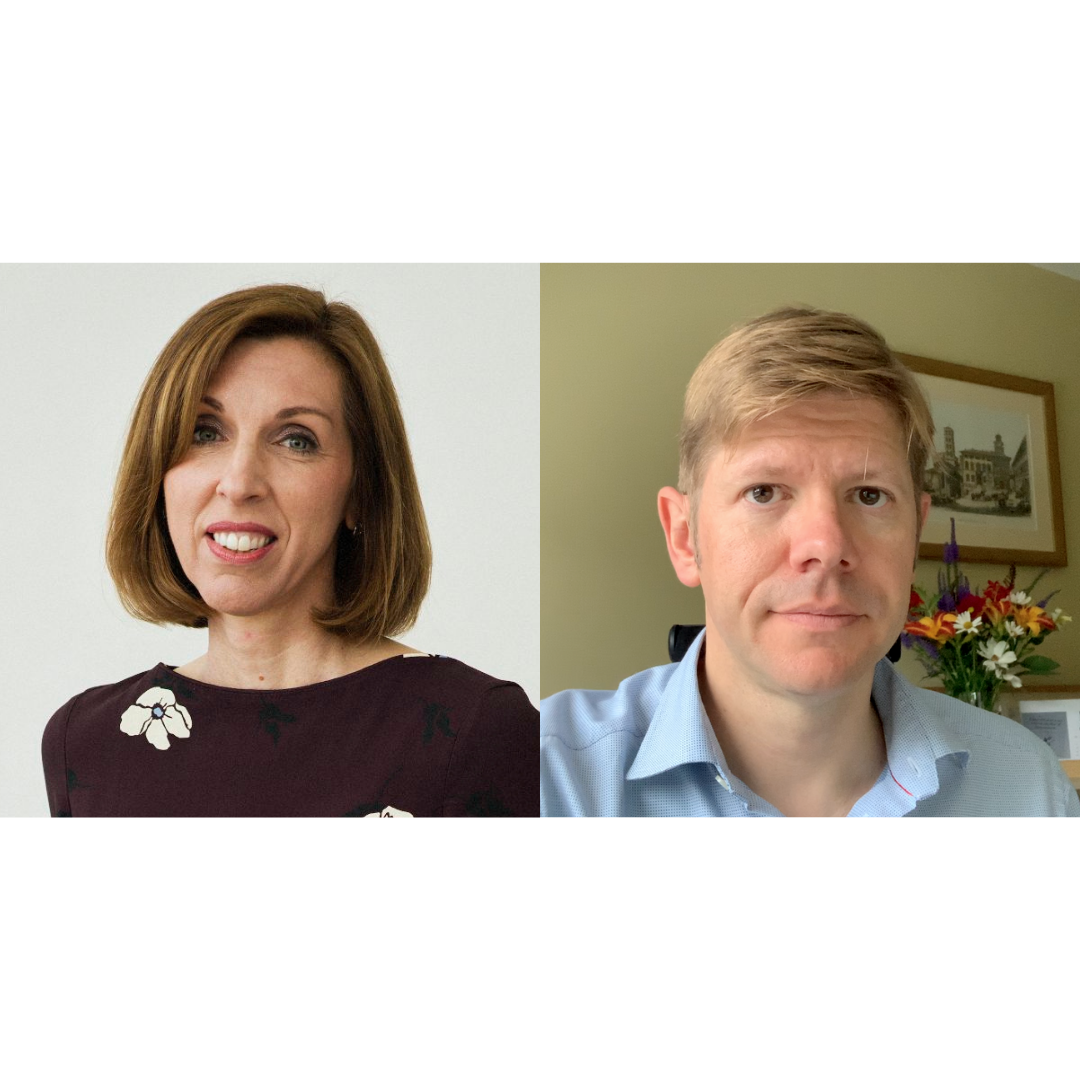
In this unique episode, Dr Louise Newson talks to her husband, who is a consultant urologist, about the lack of menopause training among medical professionals, the importance of urologists understanding the consequences of the menopause on urinary function and the benefits of HRT and vaginal oestrogen.
Paul Anderson explains some of his fascinating work as a highly specialist reconstructive surgeon, and together they discuss the rewarding aspects of each of their careers in transforming the quality of lives of men and women through surgery and menopause care respectively.
If you’ve ever wondered about what kind of man is married to Dr Louise Newson, this is the episode for you!
Paul’s 3 reasons why urologists should know about the menopause and HRT:

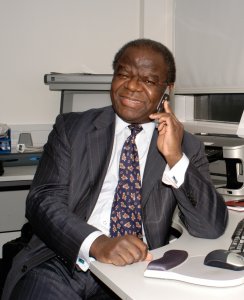
Professor Isaac Manyonda, professor of obstetrics and gynaecology at St George’s Hospital in London, makes a welcome return to the podcast to discuss the important hormone, testosterone, with Dr Louise Newson.
The experts discuss why awareness of testosterone in women is usually overshadowed by oestrogen and they describe what type of symptoms can be greatly improved by replacing testosterone, as well as the different preparations available, licensing issues and challenges of accessing the medication on the NHS.
Isaac’s top three tips if you’re considering testosterone:


Dr Katy Munro was a GP partner in a Hertfordshire practice for many years and developed migraine in her 40s, around the time of her own perimenopause. This led to an interest in migraine and her involvement with the National Migraine Centre, first as a patient and then as a doctor.
Katy now works as a GP Headache Specialist at the National Migraine Centre, a charity that raises awareness on migraine, shares information and advises how to manage it. In this podcast episode, she chats to Louise about what migraine is, dispels myths, and explains why migraine is not just simply a ‘bad headache’. The experts discuss the role of oestrogen in migraine, other possible triggers, and ways to help minimise the onset, severity and frequency of migraine. This hugely useful conversation is a must-listen if you or a loved one experiences migraine.
Katy has recently written a book on migraine, Managing Your Migraine, and it is available to buy now.
Katy’s three reasons to buy her book:
Managing Your Migraine by Dr Katy Munro, is published by Penguin Life Experts.

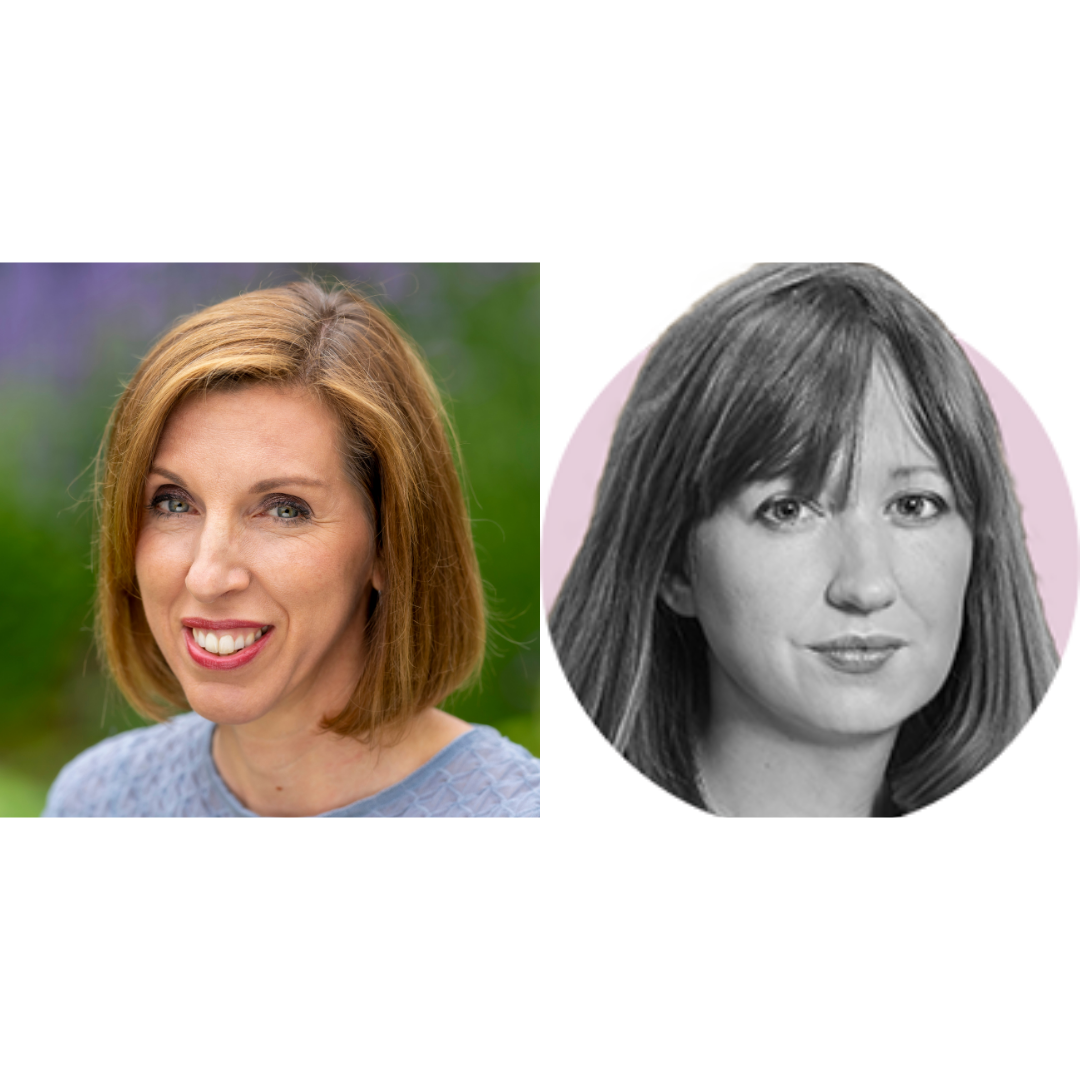
Dr Louise Newson’s new book, Preparing for the Perimenopause and Menopause, is now released by Penguin Life as part of the Penguin Life Experts series. Health journalist, Kat Keogh, worked with Dr Newson to write the book, and in this podcast episode they discuss the importance of creating factual and engaging information about the menopause, not just for women but their partners, children, friends and colleagues.
Kat Keogh has worked as a health journalist for 15 years and currently writes for a nursing journal. She collaborated with Dr Newson on her first book in 2019, the Haynes Manual on the menopause, and Kat is passionate about writing to not only educate but empower women in their perimenopause and menopause journey. Now that she has all this knowledge from working with Dr Newson, she is better prepared for menopause than her grandmother was, whose only means of coping was to go and shout down a well at the bottom of her garden!
Kat’s three reasons to buy Dr Louise Newson’s new book:
Preparing for the Perimenopause and Menopause, published by Penguin Life, is out now and has reached Amazon’s Number 1 Best Seller on its launch day, 26th August.


Journalist, podcaster, and author Lorraine Candy, who is former Editor in Chief of Cosmopolitan, Elle, Sunday Times Style, and Former Parenting columnist for the Sunday Times Magazine. She co-hosts the chart-topping weekly podcast, ‘Postcards from Midlife’, with fellow journalist Trish Halpin. During lockdown Lorraine, 53, wrote the highly successful book, ‘Mum, What’s Wrong With You? 101 Things Only Mothers of Teenage Girls Know’, a family memoir of hilarious personal anecdotes and guidance from experts on adolescent mental health and parenting as a perimenopausal woman.
From teenage hormones to menopausal hormones, in this podcast episode Lorraine and Louise discuss the importance of educating women about the perimenopause and menopause, and revisit their experiences of battling the media to help bring the taboo topic to normality. Further in, Lorraine and Louise have an honest conversation about raising teenage girls in particular, and offer advice on how to keep your cool while keeping the channels of communication open.
Lorraine’s book is heartily recommended by Louise, a mum of teenage girls herself, and it is available to buy now, published by 4th Estate.
You can find Lorraine Candy on social at:
Instagram – @lorrainecandy
Twitter – @lorrainecandy
Facebook – @sundaytimesLorraine

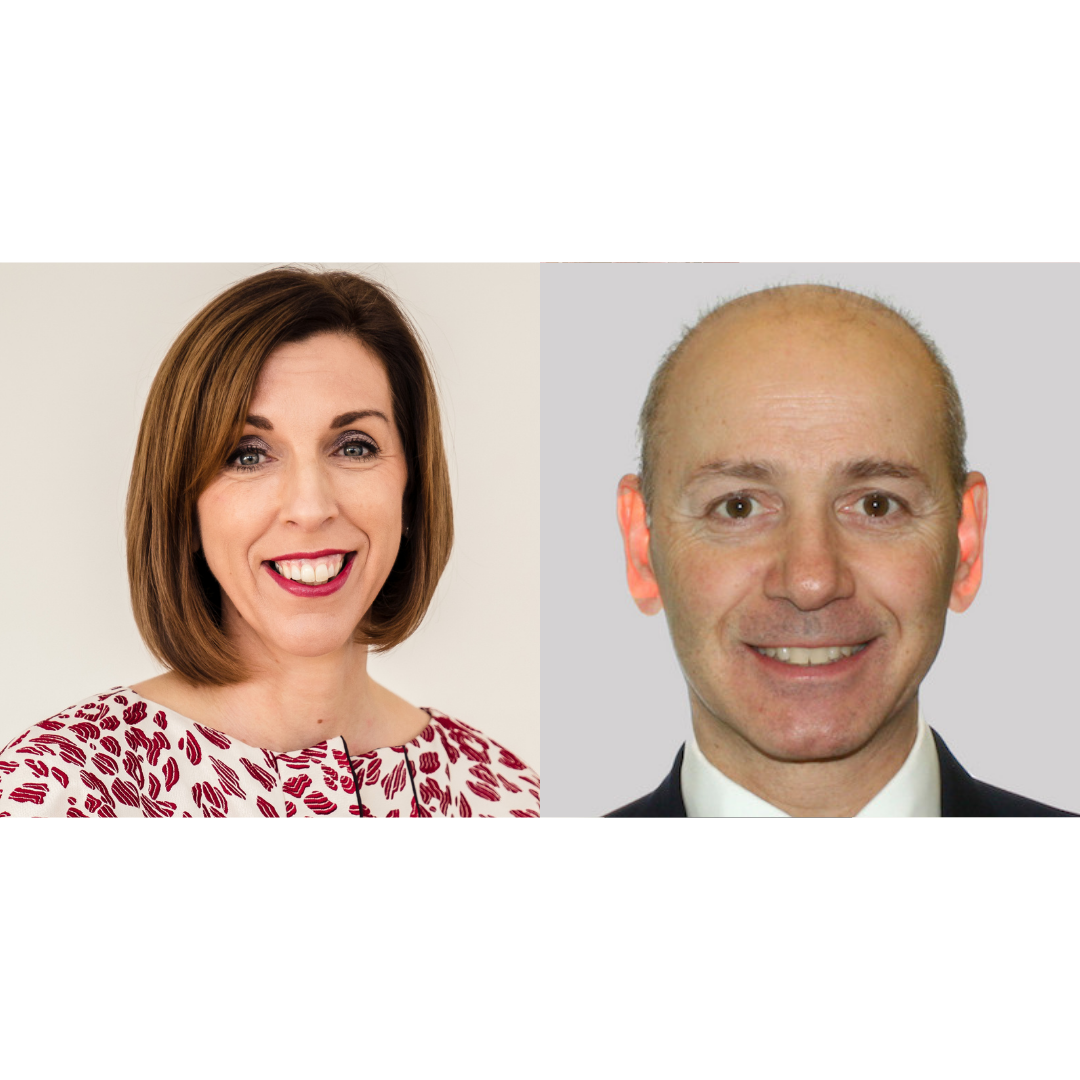
World renowned Consultant Gynaecologist, Nick Panay, of Hormone Health, shares his past and current interests in hormone related issues such as menopause, premenstrual syndrome, progesterone intolerance and Premature Ovarian Insufficiency.
He describes ongoing areas within women’s hormone health where there continues to be huge unmet need and how, through training, he is seeking to overcome this, not just in the UK but globally through his work with the International Menopause Society.
Together, the experts discuss the importance of their roles in empowering women and supporting them to make their own choice about treatments and both agree that as a public health issue, the menopause requires a national approach that focusses on preventative rather than reactive medicine.
Nick’s three aims for global menopause care:
Find Nick on social media at:
Twitter – @HormoneHealth92
Facebook – @HormoneHealthClinics
Instagram – @hormonehealthuk
LinkedIn – Nick Panay


In this episode, Dr Louise Newson talks to Arabella Preston, co-founder of Votary skin company, about her background as a make-up artist and what prompted her to start creating cleansing and facial oils from her kitchen table.
Together they discuss how to best care for your skin and how to know what products to buy among the crowded skincare marketplace. Arabella discusses the almost taboo topic of female facial hair and how to deal with it. She also talks openly about recognising her own early signs of perimenopause and what she has learnt about the impact of hormone changes on the skin.
Arabella’s three top tips for looking after your skin:
Find out more about Arabella’s cleansing and facial oils or her magic razors at the Votary website www.votary.co.uk

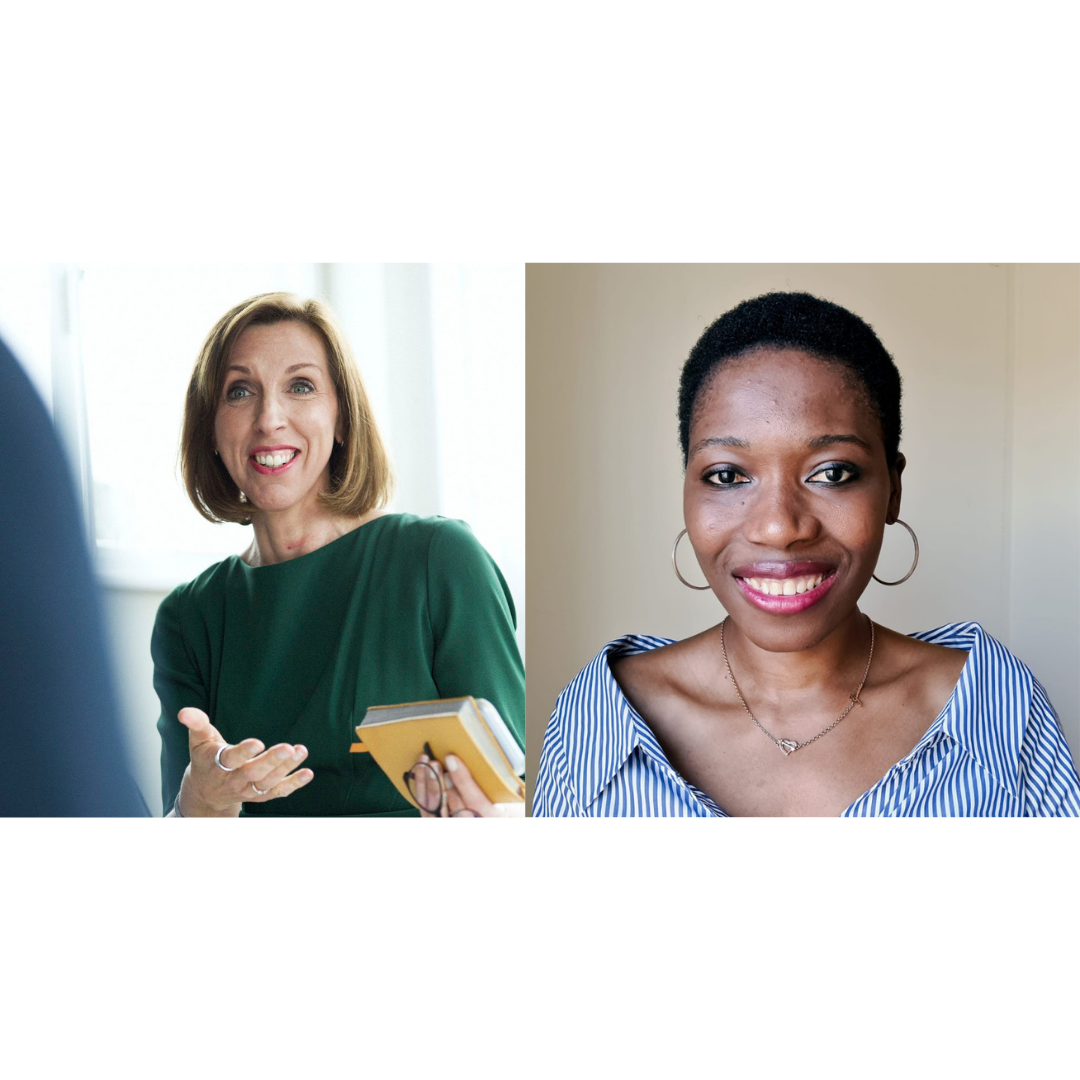
In this inspiring episode, Dr Louise Newson talks to Anita Elawure, a women’s health advocate, who shares her startingly honest experience of premature ovarian insufficiency (POI) since she was a teenager. After many years of trying to ignore her situation, she began to look into what it really meant, for her fertility and the impact of living in a postmenopausal state for the rest of her life.
Anita decided to create a platform for her to share her experiences, in the hope that she and others wouldn’t feel so alone, and provide a safe place that offered support and learning from others going through POI. Eighteen months ago, Anita founded Blossom Living with POI and, as her page says, 'You have me. I have you. Together we blossom.'
Anita’s top three tips:
Follow Anita and Blossom Living with POI on Facebook, Instagram or YouTube


Gordan Lauc is a Professor of Biochemistry and Molecular Biology, and the Chief Scientific Officer at GlycanAge. In this episode Dr Louise Newson feeds her inner geek and enjoys a fascinating conversation with Gordan as he describes his groundbreaking research into glycan molecules and their role in aging and disease processes. Even though scientist’s understanding of the biological importance of glycans is still developing, ‘glycoscience’ has now become a vital field in life and medical sciences.
Aging is the accumulation of damage in your body over time, caused by a long-term over-activation of the immune system. Analysing your body’s glycan molecules is a way of discovering your biological age and helps you know whether your current lifestyle is optimal for good health as you age. It is possible to lower your biological age by changing your diet, exercise, sleep habits and stress levels.
Professor Lauc’s top three tips:
You can find Gordan Lauc on social media at:
Twitter: @gordanlauc
LinkedIn: gordanlauc
You can also find GlycanAge on social media at:
Instagram: glycanage

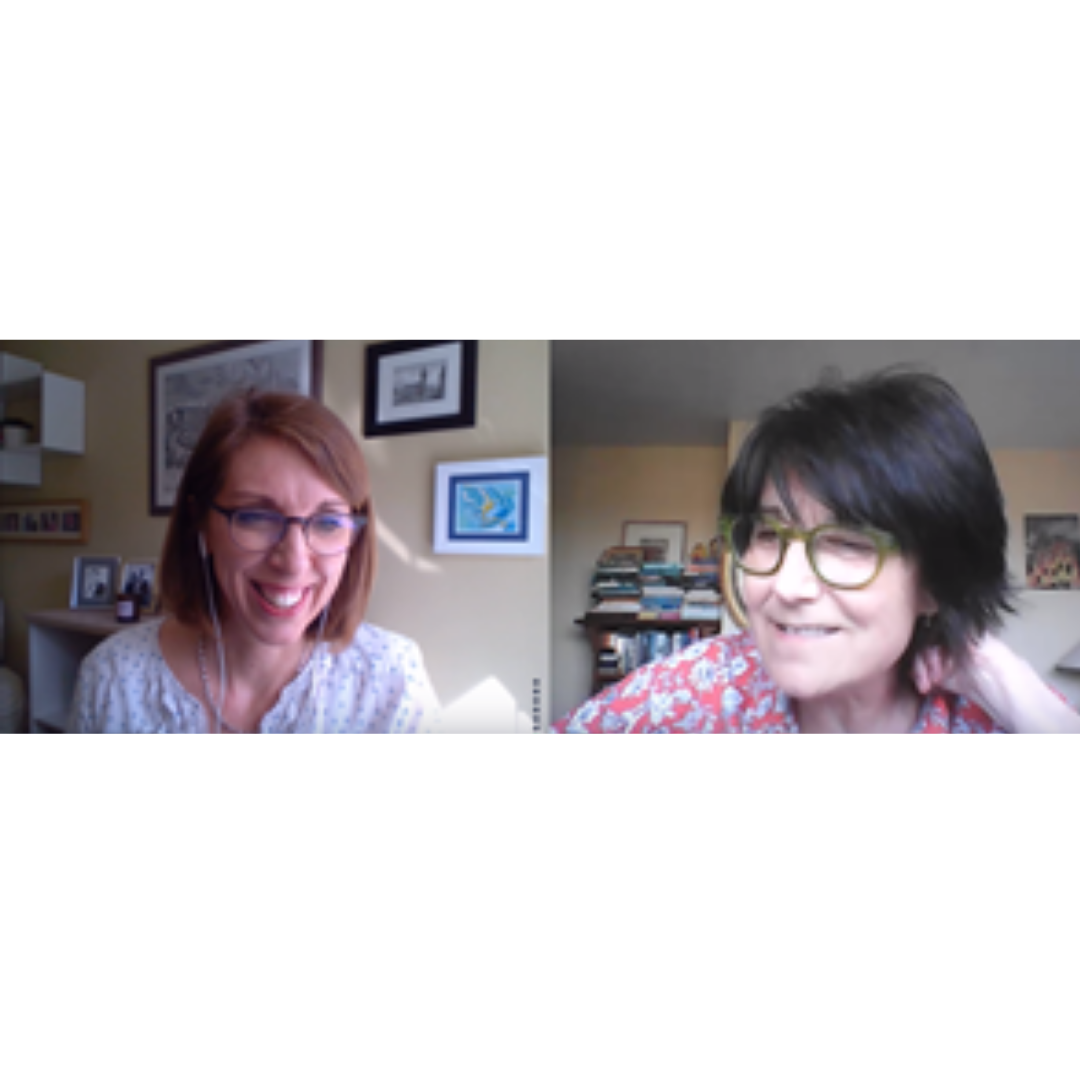
Helen is a functional imagery training (FIT) practitioner and weight loss coach who discovered FIT a couple of years ago and has been helping women to achieve lifestyle changes using this effective technique. FIT is a technique that supports behaviour change using mental imagery.
Coming from two decades of research showing that mental imagery is more strongly emotionally charged than other types of thought, FIT gives people a powerful tool to strengthen and sustain motivation to reach goals they value: weight loss, increased physical activity, or better sleep for example, which in turn leads to confidence and increased self-esteem. Women often experience weight gain, lethargy, or low mood around the perimenopause and the menopause which can lead to a negative cycle of poor choices, comfort eating and misery!
Living through the pandemic and associated lockdowns with all the extra stresses it has brought has also made healthy living harder for some. FIT uses mental imagery blended with motivational interviewing (a type of empathetic counselling/coaching) to help clients identify the health and fitness challenges they face now and how they would like to feel in the future. FIT is about mindset change, not a diet technique. It teaches people to imagine in a detailed way what it feels like and looks like to achieve their ideal selves and how that will benefit their health, and also benefit the people closest to them. FIT enables people to imagine in detail the steps they have chosen to reach their ideal selves.
Helen’s three take-home tips:

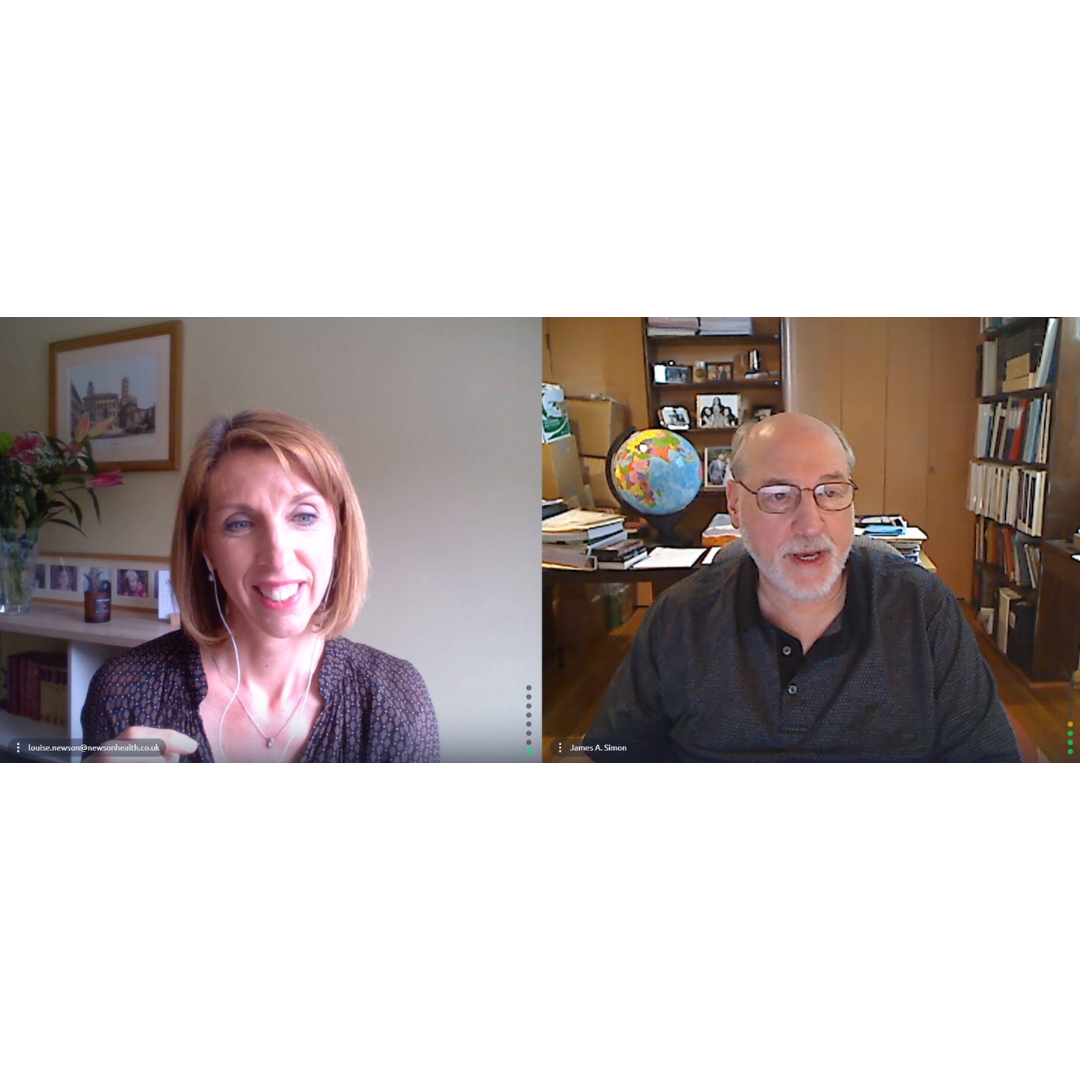
In this episode, Dr Louise Newson is joined by Professor James Simon as they take a deeper look at our bones and discuss osteoporosis: what happens to your bone strength during the menopause, what are the risk factors for developing osteoporosis and what we can all do to try and prevent it.
Professor Simon’s 3 top tips for keeping your bones strong and healthy are:

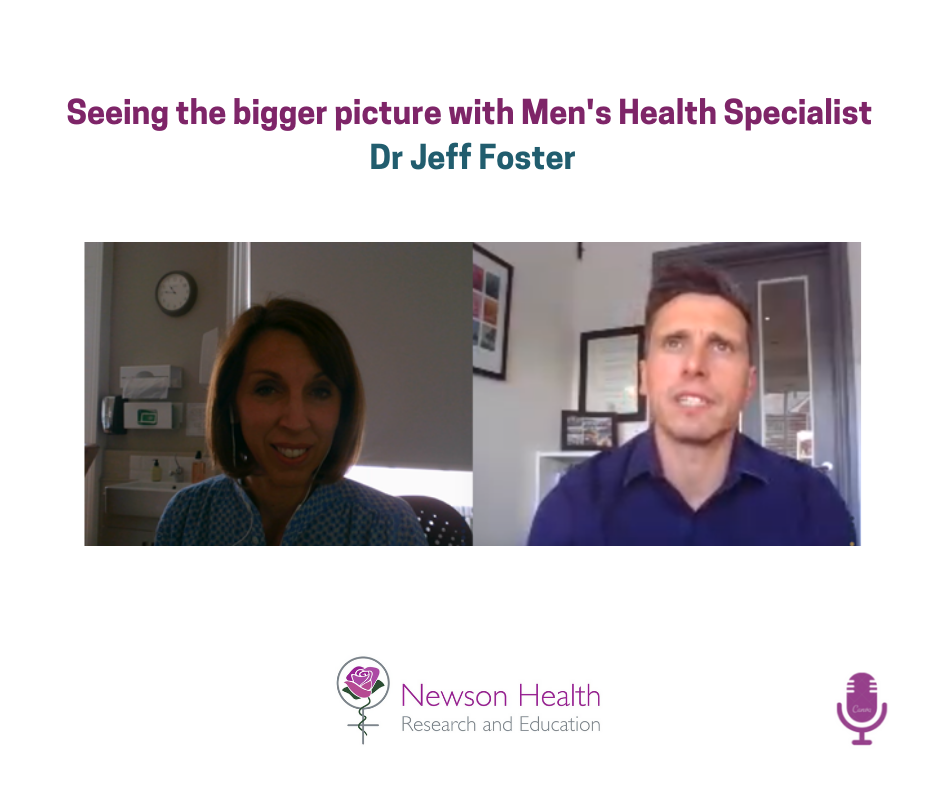
If you have a male partner, this episode is definitely one for them too. Dr Jeff Foster is a GP and Men’s Health specialist who shares an interest with Dr Newson in hormones and the effects of them – or lack of them – on our lives and future health.
Together they discuss what makes up the specialities of Men’s Health and Women’s Health, and explain why seeing the bigger picture – one that looks at the whole person – is crucial to understanding and treating hormone deficiencies. Dr Foster discusses testosterone in men and how symptoms of low testosterone can mirror some menopausal symptoms. They discuss the benefits of testosterone on wider aspects of health, and caution is shared about the worrying popularity in some young men to use steroids and newer unregulated drugs such as SARMs.
Dr Foster’s advice to women is to look at the men in your life and see if they’re struggling with similar symptoms such as fatigue, brain fog, or low libido, and give them a nudge to speak to their doctor.
Dr Foster’s three tips for men are:
Dr Foster’s website is www.drjefffoster.co.uk.

.jpg)
Emily Fisher had always known her mother experienced an early menopause and was wary the same could happen to her. When she went to the doctors with her concerns, she was merely given the advice to ‘have children young’, but she wasn’t ready to take this step in her early 20s and decided to look into her fertility options. Investigations did indeed confirm her fears and with the help of a fertility specialist with an interest in POI, she was able to become pregnant.
After having twins, Emily suffered with multiple symptoms that could have been explained away as related to post-pregnancy hormones, but she knew there was more to it. Specialists offered conflicting advice on how best to manage her very low mood, brain fog and hot flushes. With the help of a POI specialist, Emily had to advocate for herself to get the right type and dose of HRT, and she’s now becoming more confident to talk to family and friends about what she has gone through and about the treatment she takes.
Emily’s tips for young women who may have POI:
1. Find out your family history, ask your mother, aunties, cousins, grandmothers what age they were when they started menopause. If any of them had it when young, try and speak to a healthcare professional about it. If you’re having any trouble getting pregnant, act early and if you can afford it, see a fertility specialist that specialises in POI
2. Do not give up! If you think something’s not right, see another doctor if you have to, or a nurse specialist
3. Talk to you partner, tell your friends and family. Don’t be embarrassed, we need more women to speak about this. Doing this will help you feel less alone.
You can follow Emily on Instagram at @motheringandthemenopause


Back for a second time on the podcast, Dr Louise Newson is joined by yoga teacher, Claudia Brown. Claudia is an Om Yoga magazine columnist and runs classes, workshops and retreats in Cheshire and the West Midlands. She is currently launching The Ultimate Wellness Experience – Mindfulness and Menopause. She also works with professional footballers, teaching yoga at a number of football clubs. Together, Dr Newson and Claudia discuss mindfulness, what it is and what it isn’t, why compassion and embodied cognition are so important during your menopause journey, and they discover that Louise is actually an advanced mindfulness practitioner.
Claudia’s three top tips for your mindfulness practice are as follows:
Claudia Brown email: claudia@yogabyclaudia.com
Instagram: yogabyclaudia
Facebook: www.facebook.com/yogabyclaudiauk

.jpg)
In this episode, Dr Louise Newson talks to GP and Trustee of The Menopause Charity, Dr Radhika Vohra.
Radhika is a GP with a special interest in women’s health, particularly the menopause and perimenopause. She is also an educator for GP trainees and other healthcare professionals.
Together they discuss the current landscape of menopause care in the UK, the poor profile menopause has in healthcare, training and research and the improved appetite professionals now have for more menopause education. Radhika shares her insights from a women’s health perspective and hopes the work of The Menopause Charity will be a voice for everyone.
Radhika’s three hopes for menopause across the globe:

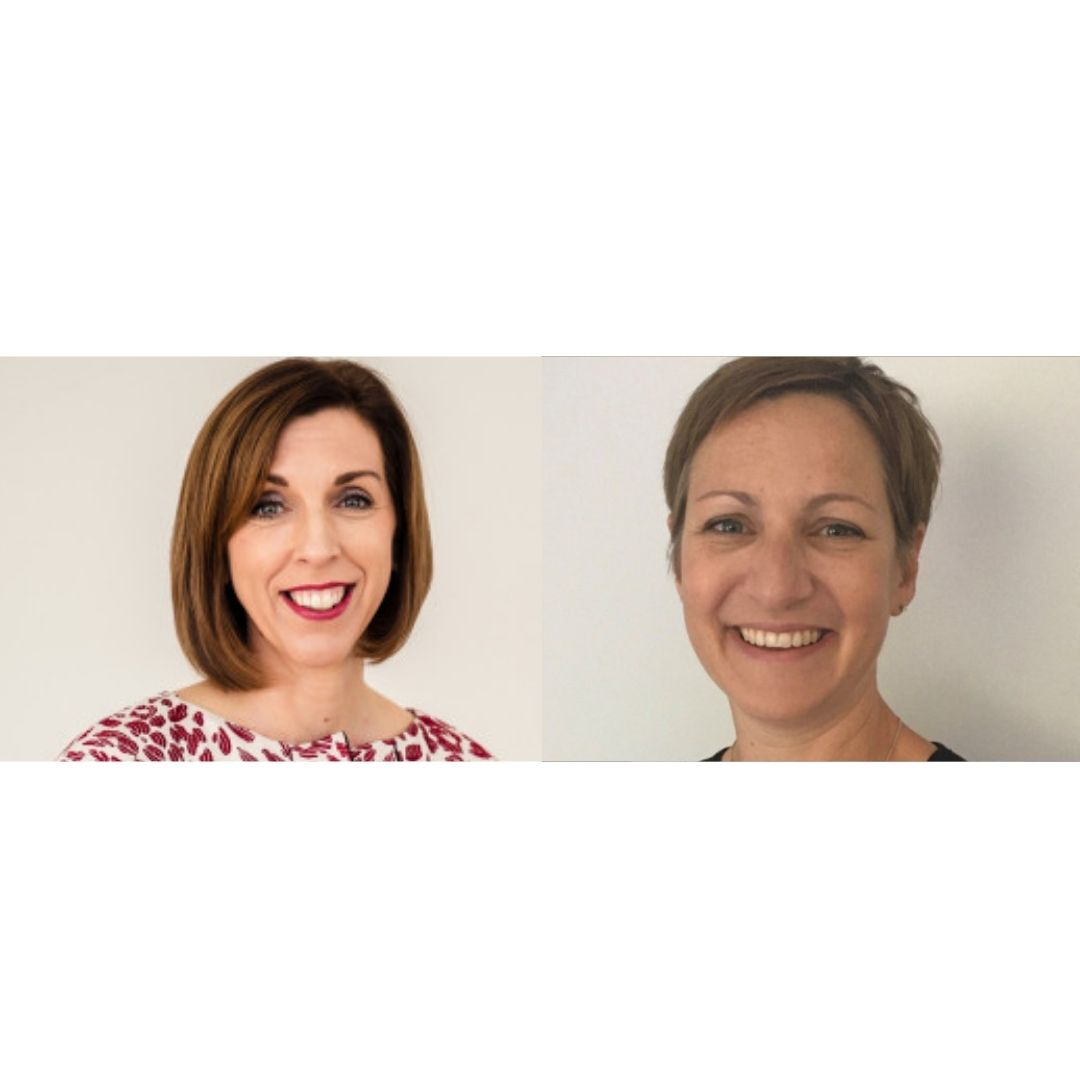
This episode features a very open and honest account from GP Melanie Martins. Mel was diagnosed with breast cancer at the age of 34 and, after a further diagnosis and chemotherapy, found herself ‘flung’ into the menopause with very little warning or discussion with the health professionals caring for her at the time.
Dr Martins shares with Dr Louise Newson why she believes every woman’s experience of breast cancer is unique to them and a ‘one size fits all’ approach must be avoided. She shares about her own quest for help with persistent and worsening genitourinary symptoms and the psychological process of navigating evidence and making a decision to take vaginal oestrogen, when she had avoided contact with this hormone for years.
Dr Martin’s advice for women experiencing menopause after breast cancer:

%2019.49.13.png)
Dorothy Byrne is the Editor at Large at Channel 4 and was Head of News and Current Affairs for 17 years at the channel. In this podcast episode, she speaks with Dr Louise Newson about her own experience of speaking up about the menopause at work. Dorothy gave a MacTaggart lecture at the TV industry’s biggest event of the year, the Edinburgh Television Festival, and received an overwhelming response for talking about the menopause in such a setting. Dorothy and Dr Louise also discuss the debilitating effects of some of the long-term consequences of the menopause such as a lack of sleep and osteoporosis, and the challenges of getting testosterone prescribed on the NHS.
Dorothy’s three top tips:

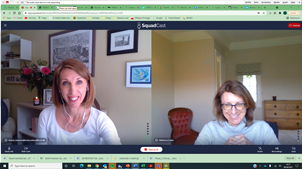
Newson Health celebrates its 100th podcast episode with the Clinical Director of Newson Health, Dr Rebecca Lewis. When Dr Louise Newson began these podcasts with the aim of reaching more women, she didn’t envisage doing more than 10 episodes, let alone 100!
In this emotional episode, Dr Lewis and Dr Newson reflect on their joint menopause mission to help women globally with the perimenopause and menopause, as they talk about how their worlds have dramatically changed from being GPs within the NHS, to owning and running the largest menopause clinic in the world.
Their joint aims for the next decade:
1. See more women getting the right treatment for their menopause. Currently, only 14% of women in the UK take HRT despite it holding benefits for many more women. The Newson Health doctors would like to see 60 – 70% of women receive this safe and effective treatment
2. Continue to raise the profile of perimenopause and menopause, not only medically but in society – especially in the workplace
3. Raise the profile of menopause globally; many countries don’t have a word for it let alone access to treatment.


Journalist and menopause activist, Kate Muir joins Dr Louise Newson in this podcast episode to discuss Kate’s experience of her own menopause journey and what propelled her to make the Channel 4 documentary, Sex, Myths and Menopause.
Kate shares how she struggled to find the right information about her symptoms and HRT, and after an unsuccessful spell taking compounded bioidentical hormones, she was shocked to realise how little advice was out there and how limited healthcare professionals’ knowledge is of up-to-date treatments. Kate thought if she, as an educated woman with an enquiring mind was fumbling in the dark, how much harder is it for other women from all walks of life to get the right menopause care and treatment?
Kate’s three messages for listeners:

.png)
Davina McCall makes a welcome return appearance to the Newson Health podcast to discuss what she has learnt from making Channel 4’s taboo-smashing documentary, Sex, Myths and Menopause. Dr Newson and Davina discuss a broad range of topics such as the role of oestrogen in our bodies, types of HRT, the huge need for more research, and the gaps in menopause care across the country.
If you listen to this episode when first released, please note Davina’s documentary airs on Channel 4 on Wednesday 12 May at 9pm.
Davina’s three reasons to watch her documentary:

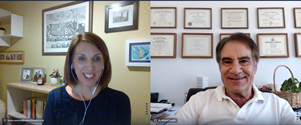
Dr Newson speaks with Professor Robert Langer in this episode. Robert Langer is Professor Emeritus in Family and Preventive Medicine at the University of California in San Diego. He was also an investigator of the Women’s Health Initiative (WHI) Study. Together, they discuss how the WHI Study from 2002 turned the world upside down for women and how they have both been trying to right it ever since.
Professor Langer describes in detail what was understood about the benefits of hormone replacement therapy before the WHI study, how the notorious study came about and why it was finished prematurely and so badly misreported in the media. His unique account of how the events unfolded helps listeners to understand the bigger picture of why healthcare professionals and women remain unaware of the benefits of HRT and are often overly cautious of the perceived risks to this day.
Professor Langer’s three top tips are:
1. All of the evidence shows that for women who are within 10 years of their menopause, or under the age of 60, if she has reason to take HRT, there is absolutely no need to be concerned about HRT. For these women the benefits strongly outweigh the risks
2. There’s no reason to stop taking HRT at any age, if you’ve been taking it from the time of your perimenopause or within 10 years of your menopause
3. With a knowledgeable practitioner, there’s no reason that a woman who is past her menopause or over 60, can’t start taking HRT, as long as the clinician is aware of how to start slowly and get hormone levels to the right point.

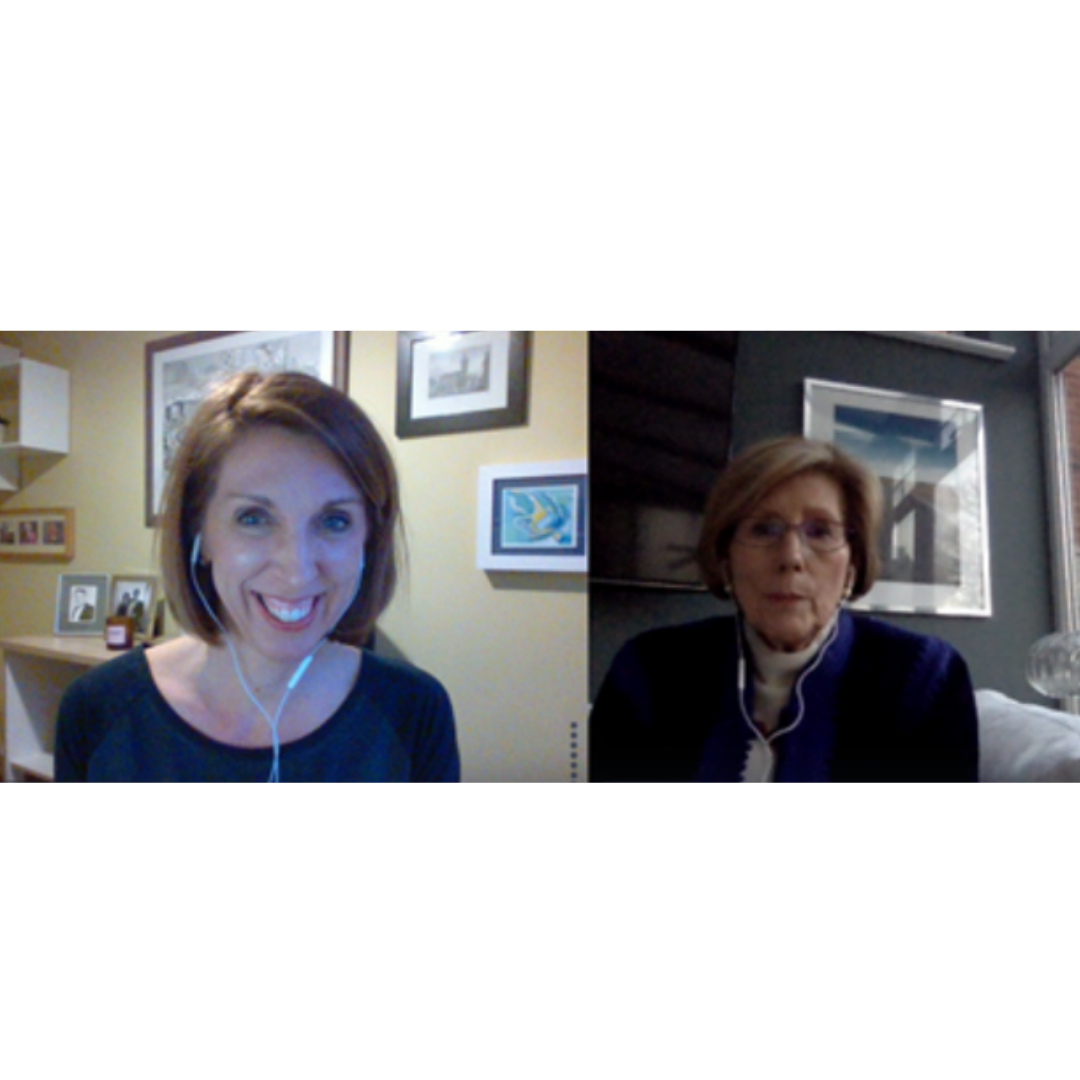
Dr Newson has a fascinating conversation with Kay Anderson, a woman in her 80s who began taking HRT after a hysterectomy in 1972, when she was only 36. Kay remembers the frightening and devastating depression that suddenly engulfed her, as a mum with three young children, and how her gynaecologist agreed to use her as a ‘guinea pig’ and let her have some HRT.
They discuss the different types of HRT that Kay has taken and prescribing trends over the last 50 years, and Dr Newson explains how safe modern types of oestrogen is through the skin, and how it can protect the health of your heart, bones and mind as you age. Kay has been the only one of her friends to take HRT and is also the only one who doesn’t have to take any other medications!
Kay’s top three tips:

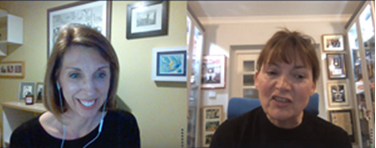
Lorraine Kelly joins Dr Louise Newson in this podcast episode and they discuss their shared experience of talking about the menopause on that infamous couch!
Lorraine talks openly about her own menopause and how treatment radically changed her work life, relationships, and emotional wellbeing. Every time menopause is discussed on Lorraine’s show, they have an overwhelming response from women who are struggling with their symptoms and can’t get the help they need.
Dr Newson outlines some of the ways she is trying to counteract the misinformation around HRT and general lack of awareness from the public and healthcare professionals. They discuss how attitudes are slowly changing around menopause and share their frustrations at the uphill battle they face in trying to get more help for more women.
Lorraine’s top three tips for women who are thinking about getting help:
Follow Lorraine on Instagram @Lorrainekellysmith

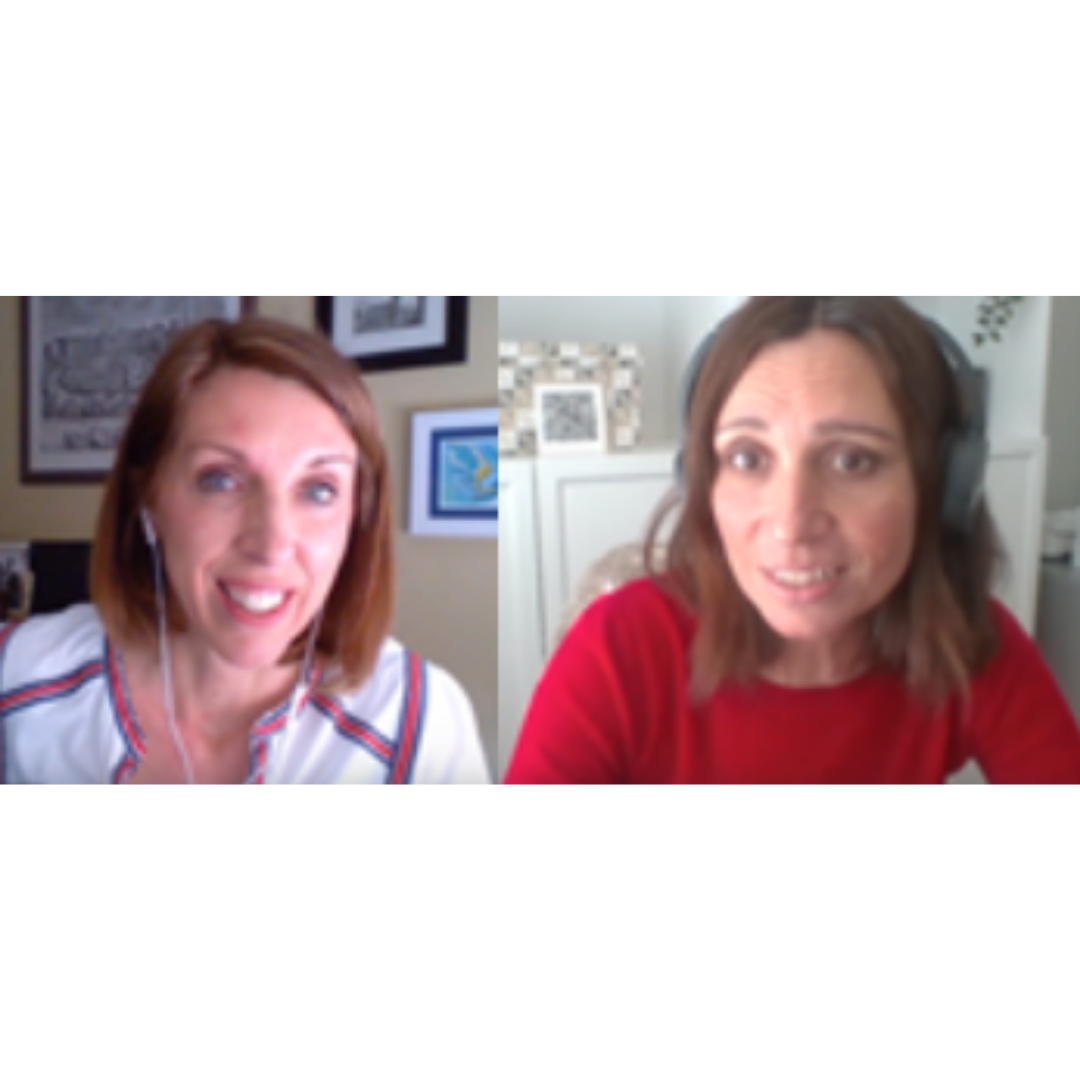
Just before her 40th birthday, Caroline was given the unexpected diagnosis of breast cancer. The grueling treatments brought on the menopause and she endured a miserable seven years as a ‘functional wreck’. Nine years on, Caroline reflects on this experience. She describes her search for help for the awful menopausal symptoms that were making her feel so unlike her usual, outgoing self and shares how she came to the decision to take HRT, despite being surrounded by advice to the contrary. Dr Newson outlines the complex and little understood relationship between breast cancer and oestrogen, and reminds listeners that once accurate information is shared, the choice about menopause treatments after breast cancer ultimately belongs to the individual.
Caroline’s three tips:

.png)
Food and health writer, Sam Rice joins Dr Louise Newson in this episode to discuss eating well in midlife. Sam tells of her unconventional route into nutrition and wellness, and how living in Bali inspired her to write the Midlife Kitchen with her good friend and bestselling author Mimi Spencer.
After the success of the Midlife Kitchen, Sam has recently published her follow up book, The Midlife Method, which supports women who have made the transition to healthier eating but struggle to shift the weight they would like to lose. She urges us to turn away from toxic diet cultures and worrying about our dress size, and focus more on our microbiomes, and having a healthy, happy gut.
Sam’s three top tips are:
The Midlife Kitchen: Health Boosting Recipes for Midlife & Beyond: http://www.amazon.co.uk/Midlife-Kitchen-health-boosting-recipes-midlife/dp/1784723185
The Midlife Method: How to Lose Weight & Look Great After 40: http://www.amazon.co.uk/Midlife-Method-weight-great-after/dp/147227893
Instagram: @midlifekitchen

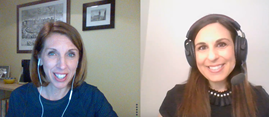
In this episode, Dr Newson has a lively discussion with Heather Hirsch, the Clinical Programme Director for the Menopause and Midlife Clinic at Brigham and Women’s Hospital in Boston. Heather was shocked to see, during her fellowship, that what was being taught about menopause principles and care was actually wrong and realised that menopause was the biggest gap in women’s healthcare across America.
The experts discuss the problem of unregulated compounded bioidentical hormones and the reasons why two thirds of American women use this type of non-approved hormone treatment, rather than FDA approved body identical HRT that is prescribed by doctors in the UK. They reflect on the shift away from using HRT over the last two decades, and the devastating consequences to women’s health because of this, and offer practical advice on how to educate other healthcare professionals to unlearn the pervasive myth that oestrogen is dangerous.
Heather’s three take away messages are:
IG @hormone.health.doc
Website: heatherhirschmd.com
YouTube: Health by Heather Hirsch
Podcast: Women’s Health by Heather Hirsch

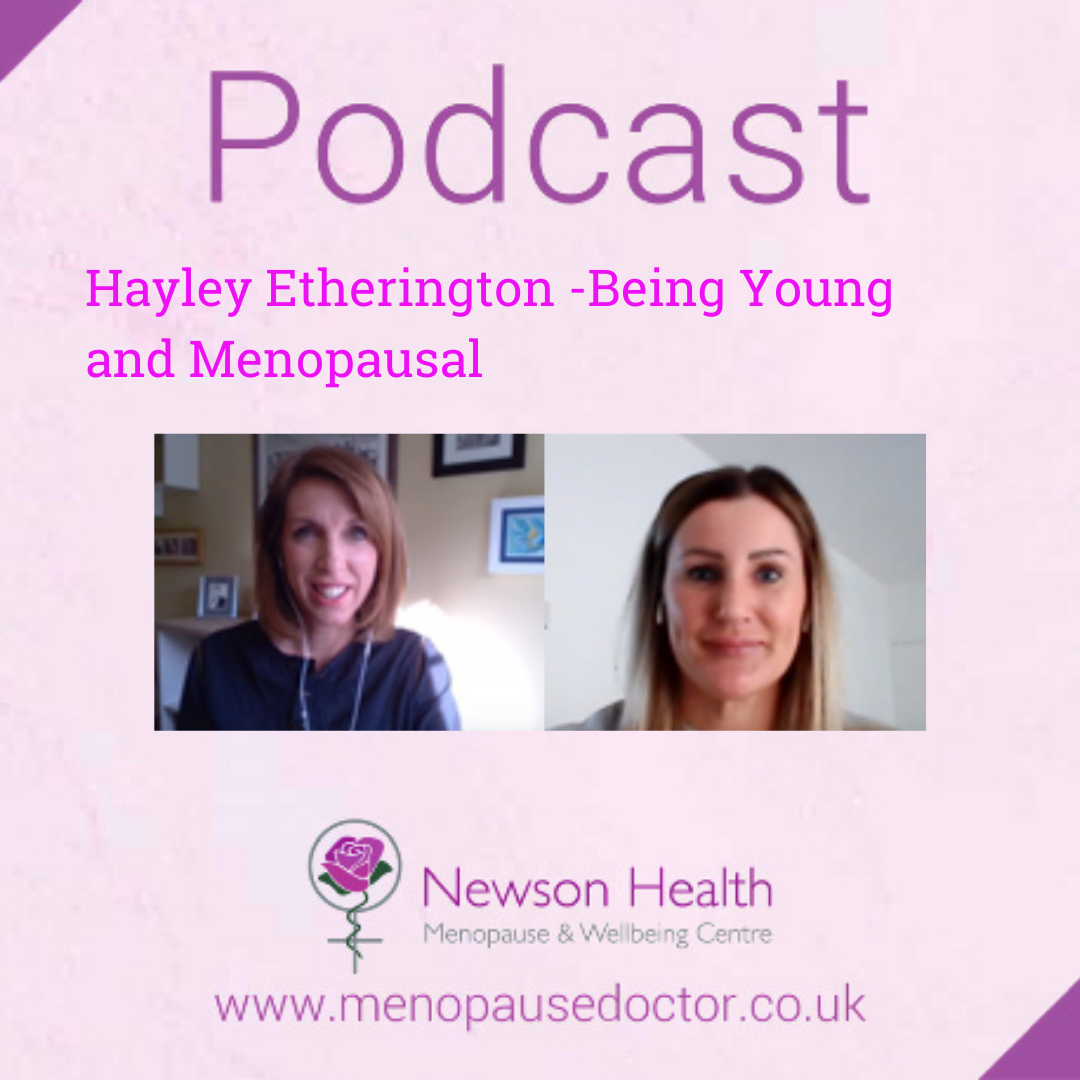
In this podcast, Dr Louise Newson chats to Hayley Etherington, a young woman who has been menopausal since the age of 14.
Hayley talks openly with Dr Newson about her experience and how, even though she was given HRT as a teenager, she has been struggling with many different symptoms for so many years. Hayley’s GP didn’t make the connection between her symptoms and her menopause diagnosis and never suggested that she may be on the wrong type or dose of HRT.
Since having a virtual consultation with Dr Newson at the Newson Health clinic, Hayley is now on a new regime of HRT and says she feels like a new person, one who feels well and is full of energy.
Hayley has decided that now is the time to speak out about her premature menopause which she held inside for 25 years, in the hope that it may help others who are experiencing something similar.
Hayley’s three take home tips:
Follow Hayley on Instagram: @prematuremenopause14
Read Hayley’s blog: https://hayleysmenopause14.blogspot.com/


In this episode, Dr Louise Newson talks to Rushna Mia about her menopause experience and how she is aiming to increase awareness of the menopause and support for women and their families within her local Asian community.
Rushna works in a primary school, is a busy mother of four, grandmother of a three-year-old and helps run her family’s businesses. She is passionate about supporting women within her community and takes a lead in various women’s groups. Rushna describes the particular issue of the menopause as a taboo within Asian communities and says it is mostly swept under the carpet and not spoken about.
It took Rushna around 8 years to recognise that the symptoms she was experiencing were due to the menopause and the doctors she saw did not raise this possibility either. After seeing Dr Sarah Ball at the Newson Health Menopause and Wellbeing Centre and feeling so much better on the right treatment, Rushna now wants other women to know the right help is available.
Rushna’s Three Take Home Tips:


Professor Isaac Manyonda is a professor of obstetrics and gynaecology at St George’s Hospital in London with a major interest in the menopause.
In this very detailed discussion, Prof Isaac and Dr Newson talk about the huge benefits of oestrogen in HRT and how many ways oestrogen can improve future health and prevent disease. They discuss the misinformation and misunderstanding of HRT over the last 20 years and how this has led to so many women being inappropriately denied HRT.
Prof Isaac also speaks very eloquently about the perceived risks of HRT and also how oestrogen on its own can lead to a lower future risk of developing breast cancer and also dying from breast cancer. Dr Newson says that the information discussed in this podcast is evidence based and it is essential that all women listen carefully!
Professor Isaac Manyonda’s Three Take Home Tips:

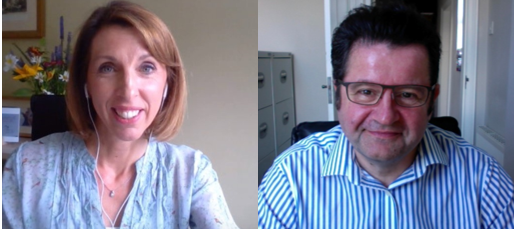
In this podcast, Dr Louise Newson is joined by Chris Mann, a consultant gynaecologist and one of the world’s leading experts in endometriosis. Chris has received extensive training in many countries in the surgical treatment of endometriosis from some of the world’s leading laparoscopic surgeons. He talks to Dr Newson about this condition, which affects around 10% of women and explains how, for many women, it takes seven years for a diagnosis. Far too many women do not seek medical help and those that do are often dismissed and given inappropriate advice or treatment.
Chris and Dr Newson talk about the different treatment options available for endometriosis and how women with endometriosis can be given different types of HRT during the perimenopause and menopause. He recommends that any woman who is not receiving adequate help should persevere and see another doctor.
We are releasing this podcast the first week in March to coincide with Endometriosis Awareness Month. Taking place across the world, Endometriosis Month exists to help increase awareness and highlight the symptoms of this debilitating condition that affects an estimated 176 million women worldwide.
Chris Mann’s three take home tips:

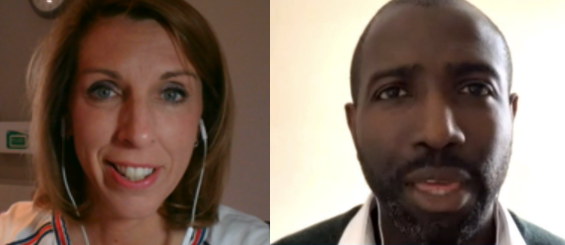
In this episode, Dr Louise Newson is delighted to chat to Dr Tosin Taiwo who is a doctor currently in his third year of GP training. Dr Tosin has an orthopaedic background as he used to work as an orthopaedic registrar before changing to general practice. Since beginning his training as a GP, Dr Tosin has developed a keen interest in lifestyle medicine.
Dr Tosin discusses menopause education for GPs and how much he learnt from the Confidence in Menopause programme. He feels like it should be renamed the “epiphany video”!
Despite his busy career in General Practice, Dr Tosin also hosts his own Podcast series, called ‘Dr Tosin’s Podcast – Healthy Living Beyond Medicine.’
Dr Tosin’s Three Take Home Tips for fellow GPs in training:
Listen to Dr Tosin’s Podcast here
YouTube: Dr Tosin


In this episode, Dr Louise Newson and nutritionist Emma Ellice-Flint discuss habits that might help with weight loss and general weight balance.
During the UK’s third lockdown, many women are finding it difficult to feel motivated to exercise and eat well. Many are having to home school their children; some are working harder than ever due to the pandemic. Plus the UK’s winter weather discourages outside exercise and movement.
Dr Newson and Emma discuss what a woman might do to try and help herself during this time. In particular they discuss the link between what a person eats and their mood and energy. Emma talks about prebiotic foods that help to feed the good gut microbes, such as rocket, garlic, onion, leek and more. They also discuss some healthy eating ideas and meals that the kids/teens at home might like too!
Emma’s three take home tips for weight balance:
Find Emma on Instagram here: @emmas_nutrition
Facebook: @emmasnutrition


In this episode, Dr Louise Newson is joined by Emma McAuley, a young woman who was thrust into a medical menopause at age 24, after undergoing treatment for breast cancer.
Emma speaks openly to Dr Newson about her experience and how she was told very little about the menopause before her treatment. Emma expected a few hot flushes and instead experienced a vast range of menopause related symptoms and issues.
Dr Newson and Emma also discuss their first meeting at an event held by young adult cancer support charity, Trekstock. Dr Newson was speaking at the event, titled Lifting the Lid on Cancer and the Menopause and Emma talks about the effect its had on her to finally feel safe enough to ask questions and be able to get the correct advice.
Emma’s three take home tips:


Dr Annice Mukherjee is a UK hormone specialist with almost three decades of experience in hospital medicine. From the early days, her specialism in hormones has always focused on optimising quality of life in hormone diseases, imbalances and deficiencies. Her knowledge helped her hugely when she went through an early menopause due to a cancer diagnosis ten years ago.
Annice is the author of The Complete Guide to the Menopause which is hot off the press, having been published by Penguin Random House on 28 January.
In this episode, Dr Newson and Annice discuss how different hormones in the body interact with each other and the importance of using holistic approaches in managing menopause alongside HRT, as well as for those of you who do not take it. She emphasises that in the context of today’s world, lifestyle approaches are all the more important and should be adopted by every women in menopause to optimise wellbeing and long-term health.
Annice’s three take home tips:
You can buy Annice’s book here: https://linktr.ee/annicemd
Find Annice on Instagram: @the.hormone.doc
Facebook: @thehormonedoc

Dr Louise Newson is an award-winning physician, respected women's hormone specialist, educator, and author committed to increasing awareness and knowledge of perimenopause, menopause, and lifelong hormone health. Each week, Louise dives into the newest research, treatments and hot topic issues, providing accessible, evidence-based information to empower your future health. Joined by fellow experts and special guests, with answers to your burning questions, Louise explores how hormones impact every aspect of our lives.
Described as the "medic who kickstarted the menopause revolution", Louise aims to empower a generation of women to have a greater understanding, choice and control over their treatment, bodies, minds and future health through their hormones. She is the creator of the award-winning free balance app, a Sunday Times bestselling author and the founder of the Newson Health clinic. With over three decades of clinical experience, Louise is a member of the Royal College of Physicians, a Fellow of the Royal College of GPs, a Visiting Fellow at Cambridge, a regular contributor to academic journals including the Lancet and the British Journal of General Practice, and has been awarded an honorary Doctorate of Health from Bradford University.




